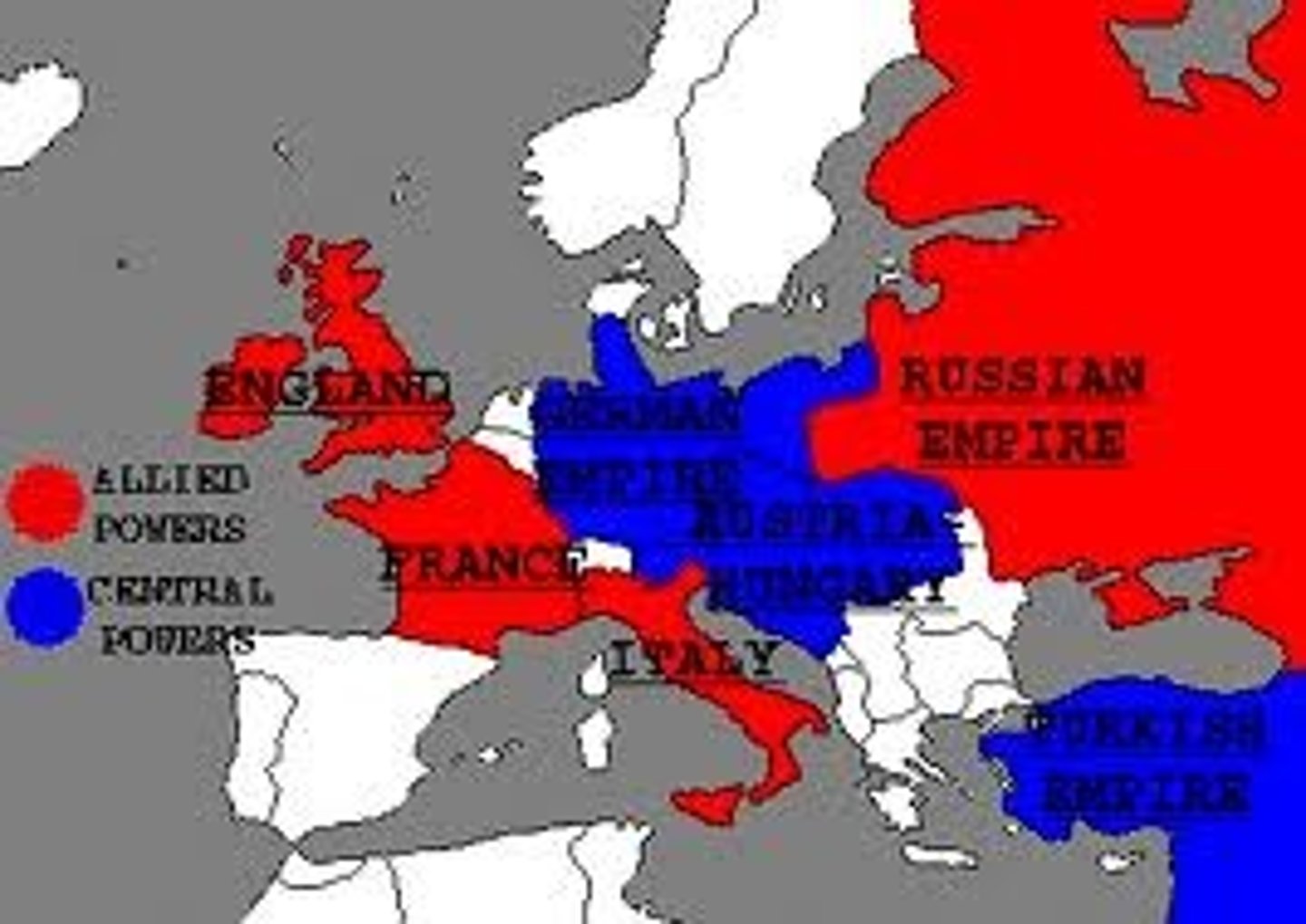AP Euro - Unit 8
1/64
Earn XP
Name | Mastery | Learn | Test | Matching | Spaced | Call with Kai |
|---|
No study sessions yet.
65 Terms
World War I
(1914 - 1918) European war in which an alliance including Great Britain, France, Russia, Italy, and the United States defeated the alliance of Germany, Austria-Hungary, Turkey, and Bulgaria.
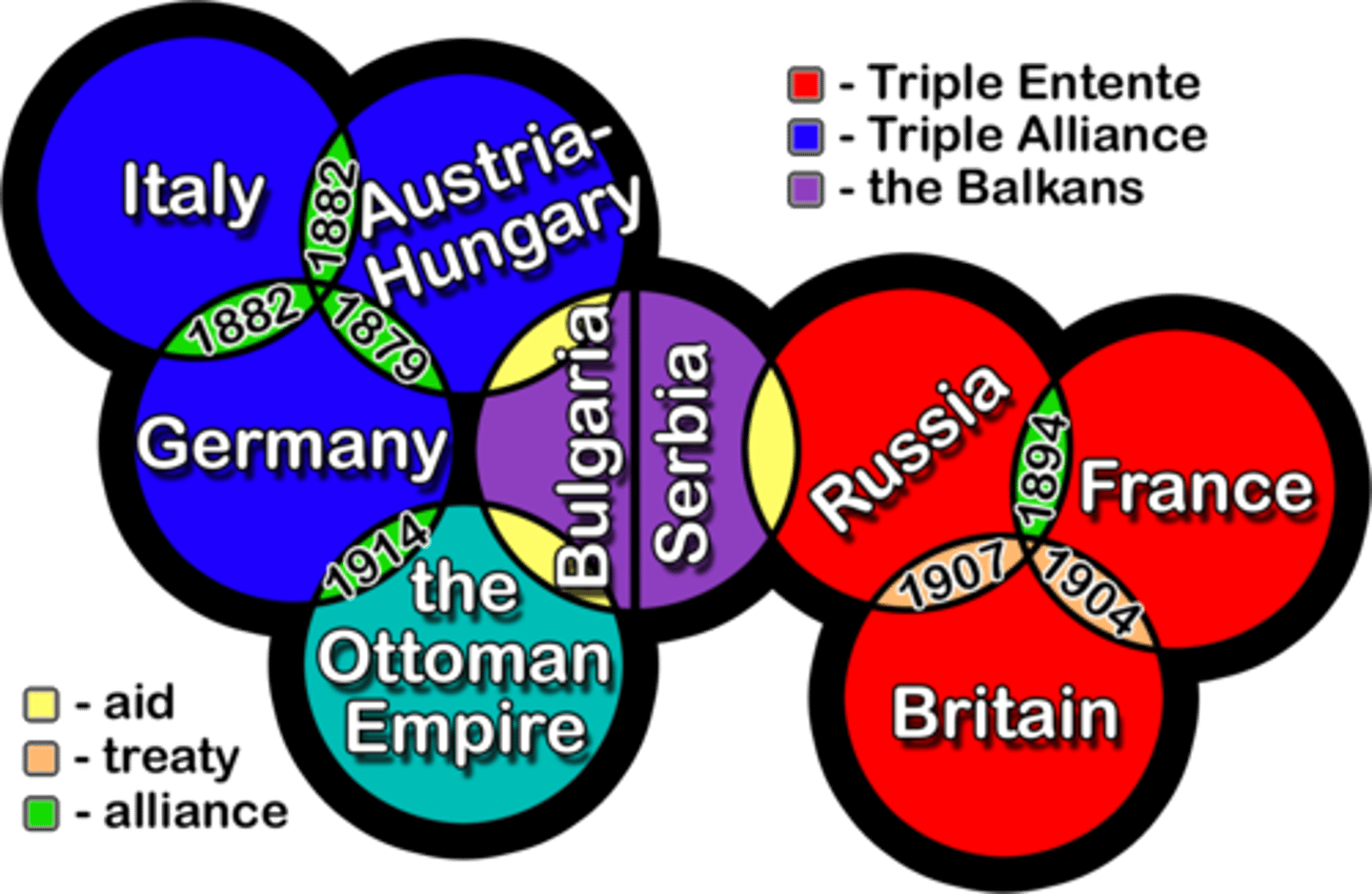
Total War
A war in which distinctions between the soldiers on the battlefield and civilians at home are blurred, and where the government plans and controls economic and social life in order to supply the armies at the front with supplies and weapons.
Triple Alliance
The alliance of Austria, Germany, and Italy. Italy left the alliance when war broke out in 1914 on the grounds that Austria had launched a war of aggression.
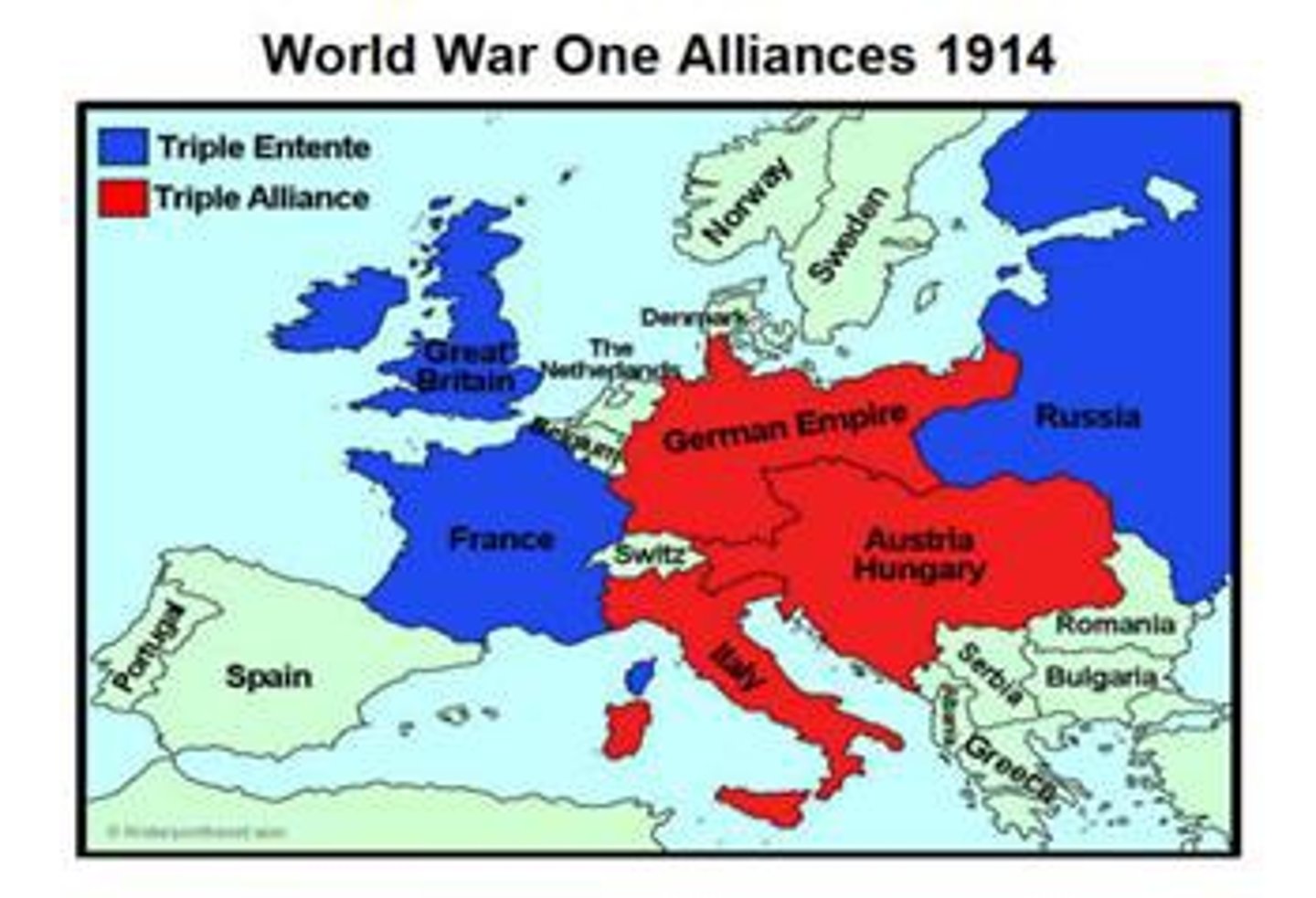
Schlieffen Plan
Failed German plan calling for a lightning attack through neutral Belgium and a quick defeat of France before turning on Russia.
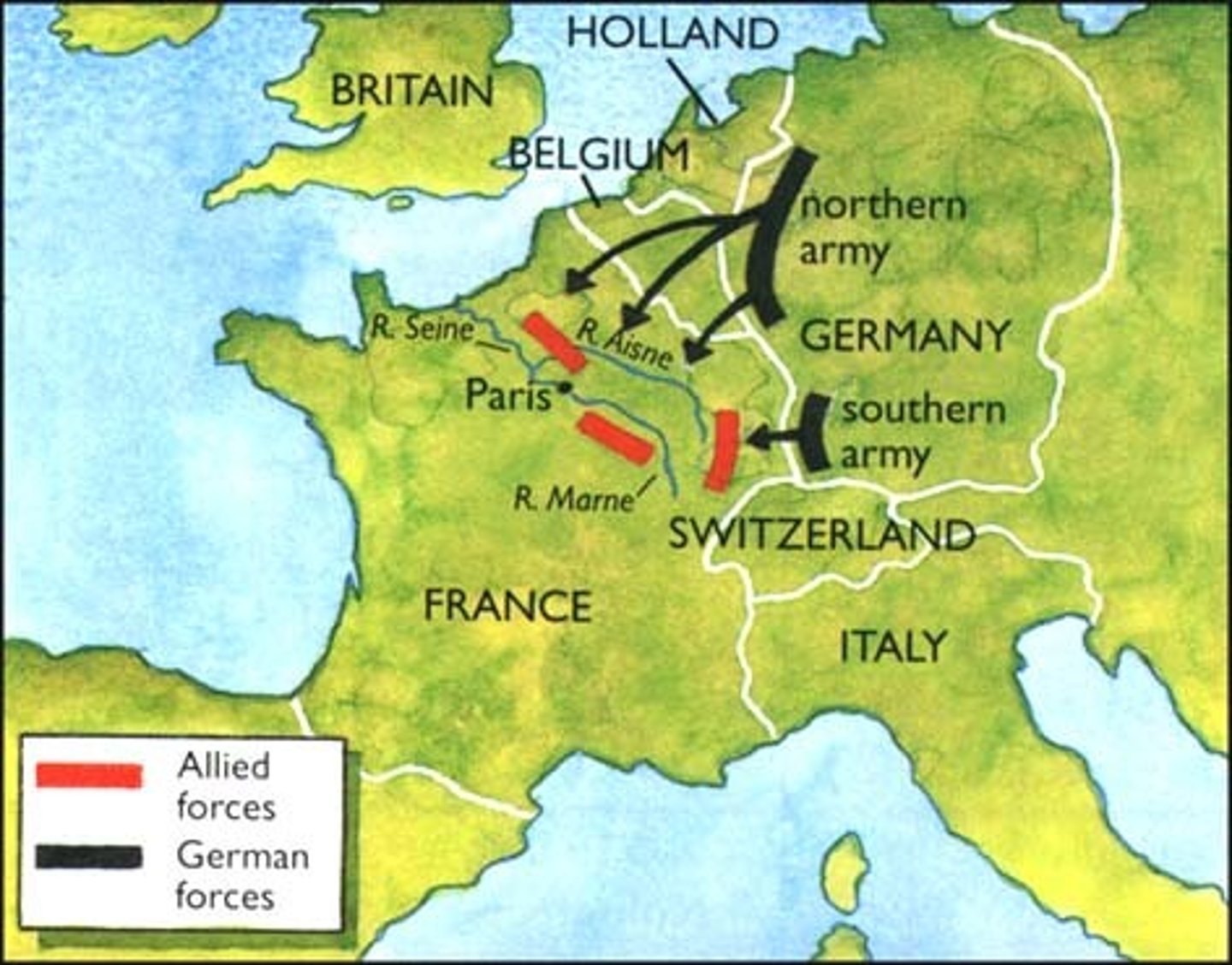
Triple Entente
The alliance of Great Britain, France, and Russia prior to and during the First World War.
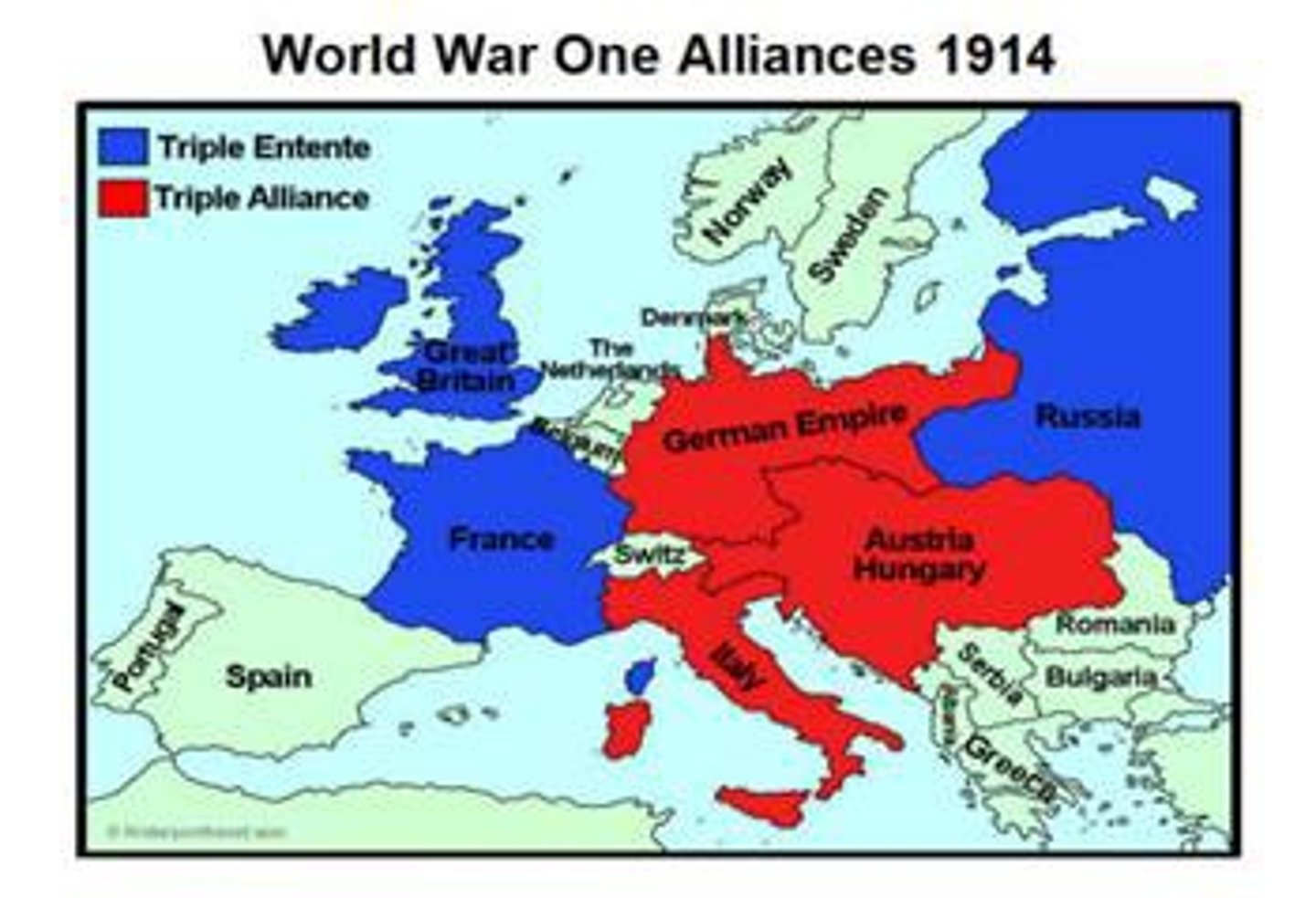
Trench Warfare
A type of fighting used in World War I behind rows of trenches, mines, and barbed wire; the cost in lives was staggering and the gains in territory minimal.
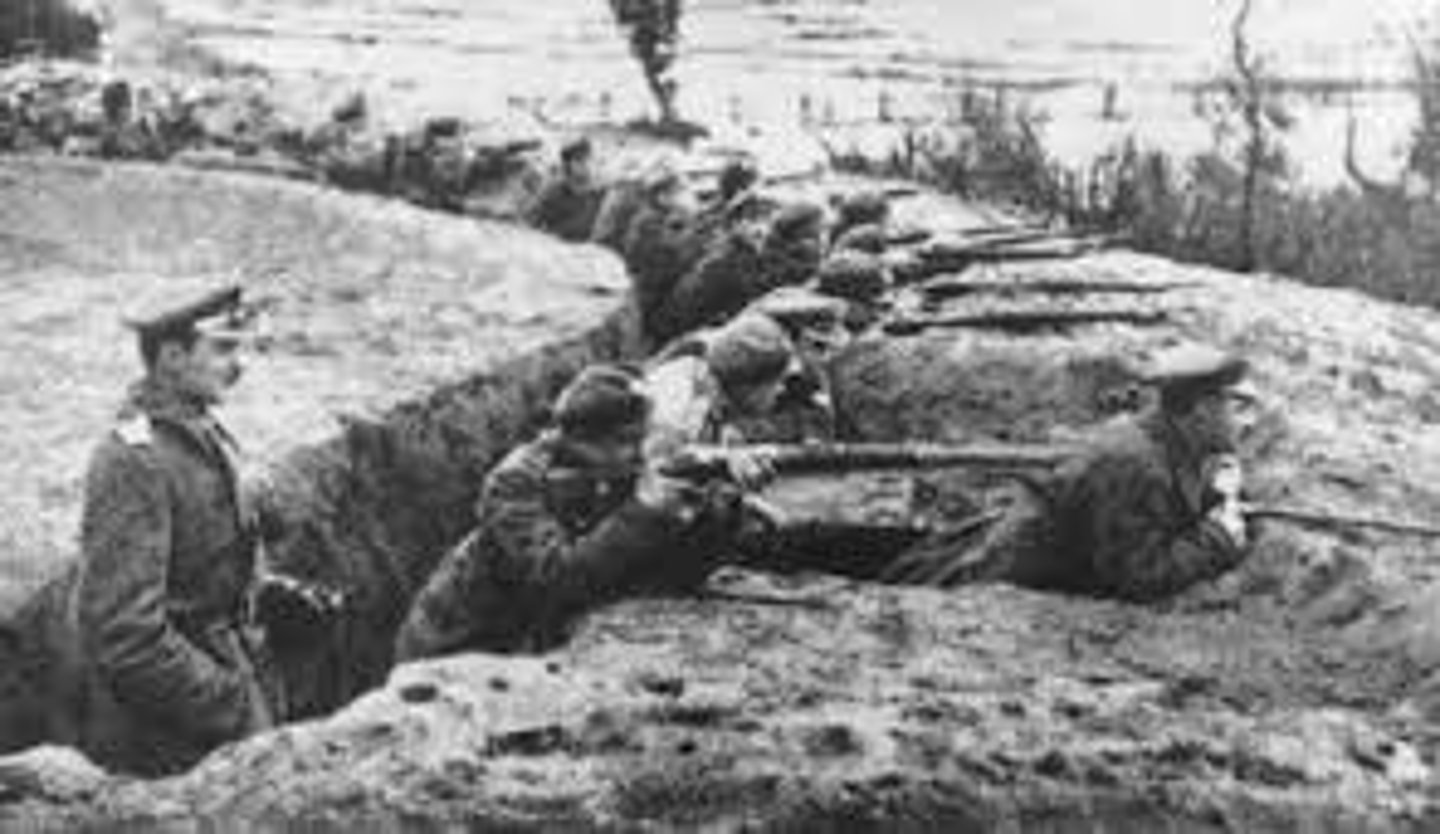
Armenian Genocide (1915)
Some welcome the Russians as liberators. Muslim Ottoman government orders a genocidal mass deportation of Armenians- 1.5 million died from murder, starvation and disease.
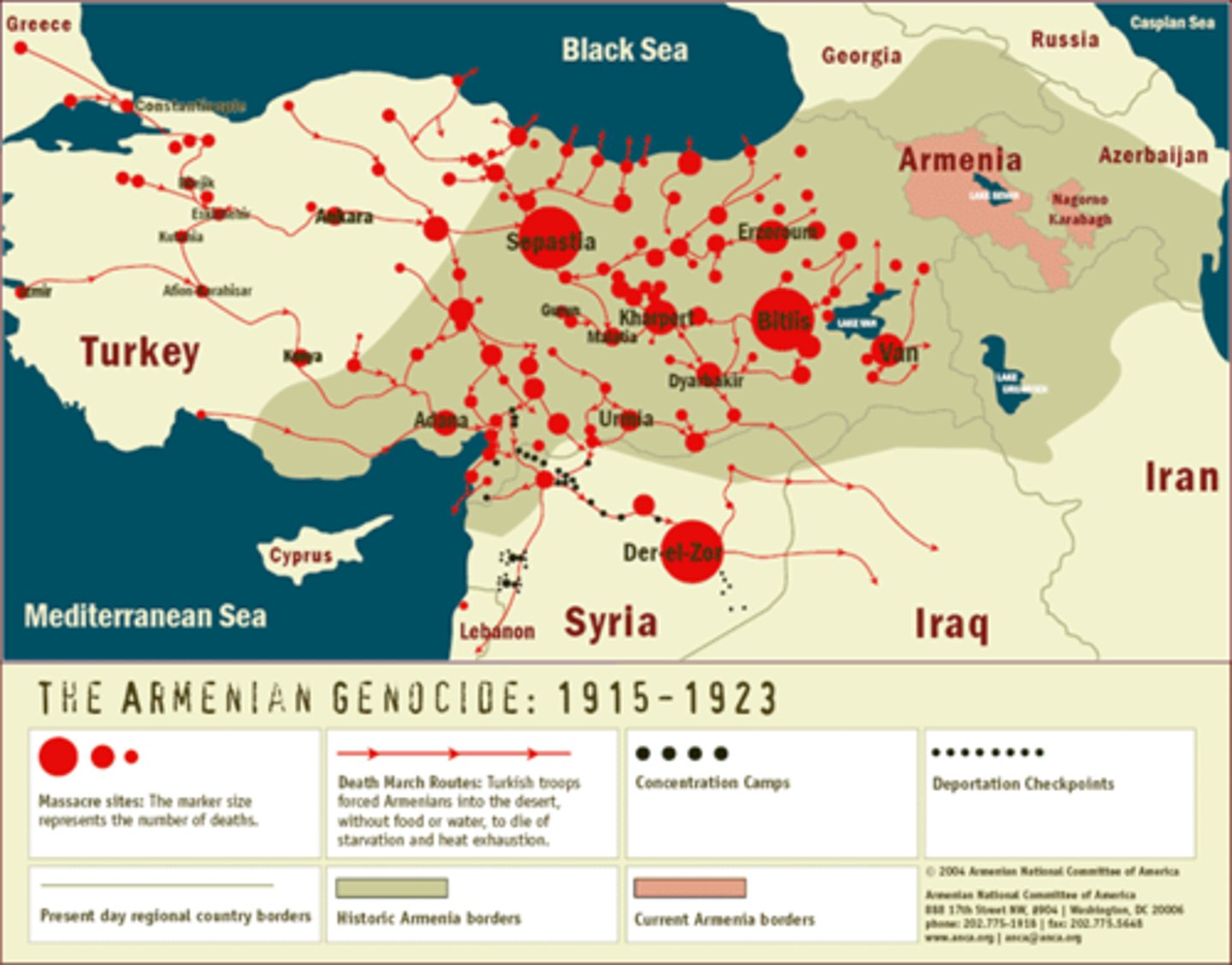
Russian Revolution (1905)
Spontaneous rebellion that erupted in Russia after the country's defeat at the hands of Japan; the revolution was suppressed, but it forced the government to make substantial reforms.
Russian Revolution (1917)
The Russian Revolution was a pair of revolutions in Russia which dismantled the Tsarist autocracy and led to the rise of the Soviet Union. The Russian Empire collapsed with the abdication of Emperor Nicholas II and the old regime was replaced by a provisional government during the first revolution of February (March in the Gregorian calendar; the older Julian calendar was in use in Russia at the time). Alongside it arose grassroots community assemblies (called 'Soviets') which contended for authority. In the second revolution that October, the Provisional Government was toppled and all power was given to the Soviets.
Vladimir Lenin (1870-1924)
Leader of the Bolshevik (later Communist) Party. He lived in exile in Switzerland until 1917, then returned to Russia to lead the Bolsheviks to victory during the Russian Revolution and the civil war that followed.
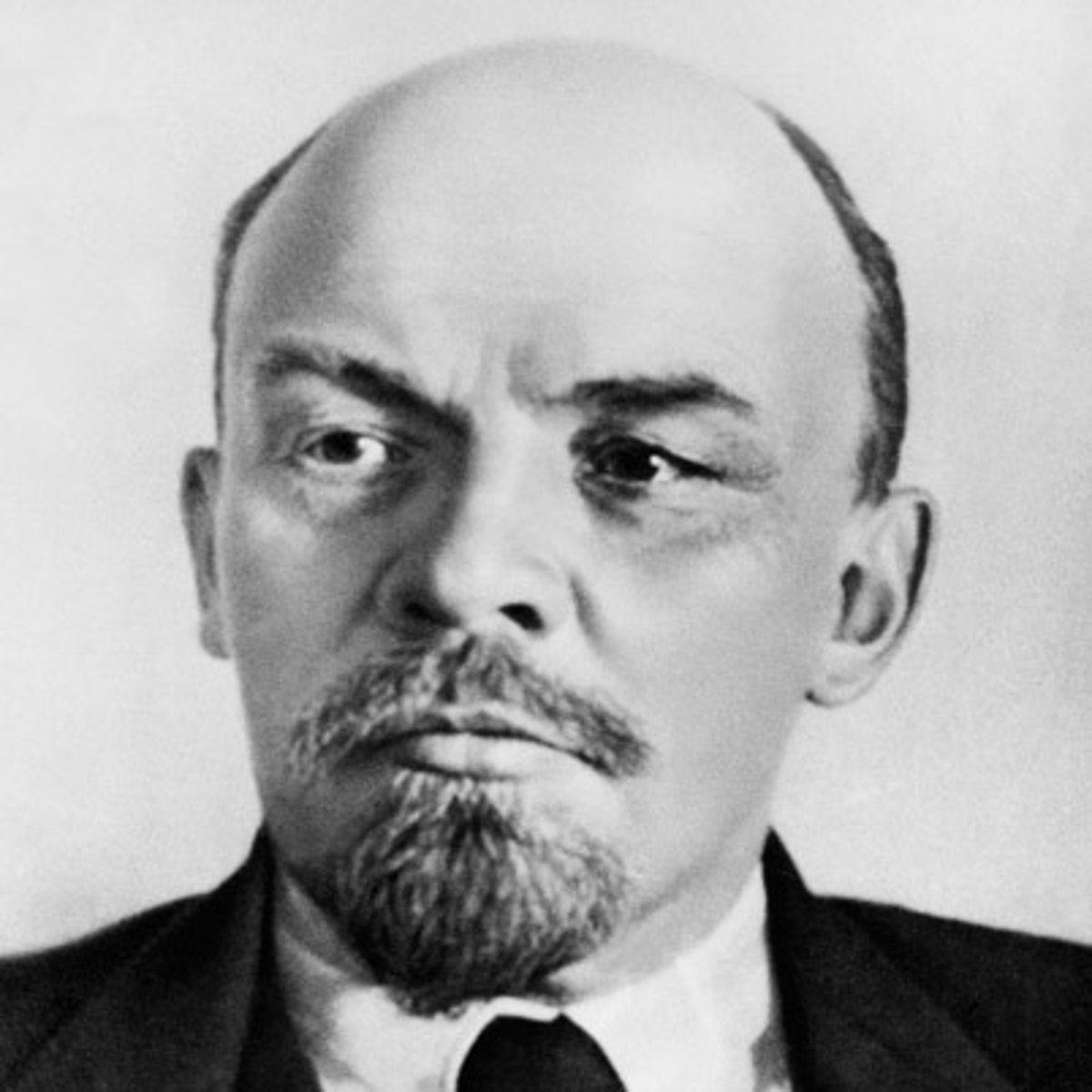
Leon Trotsky (1879-1940)
A leader who had planned the 1917 takeover and formed the Red Army. "Permanent revolution" -Socialism in the Soviet Union could only succeed if rev. quickly spread throughout Europe. Defeated by Stalin, who eventually killed him and rose to power.
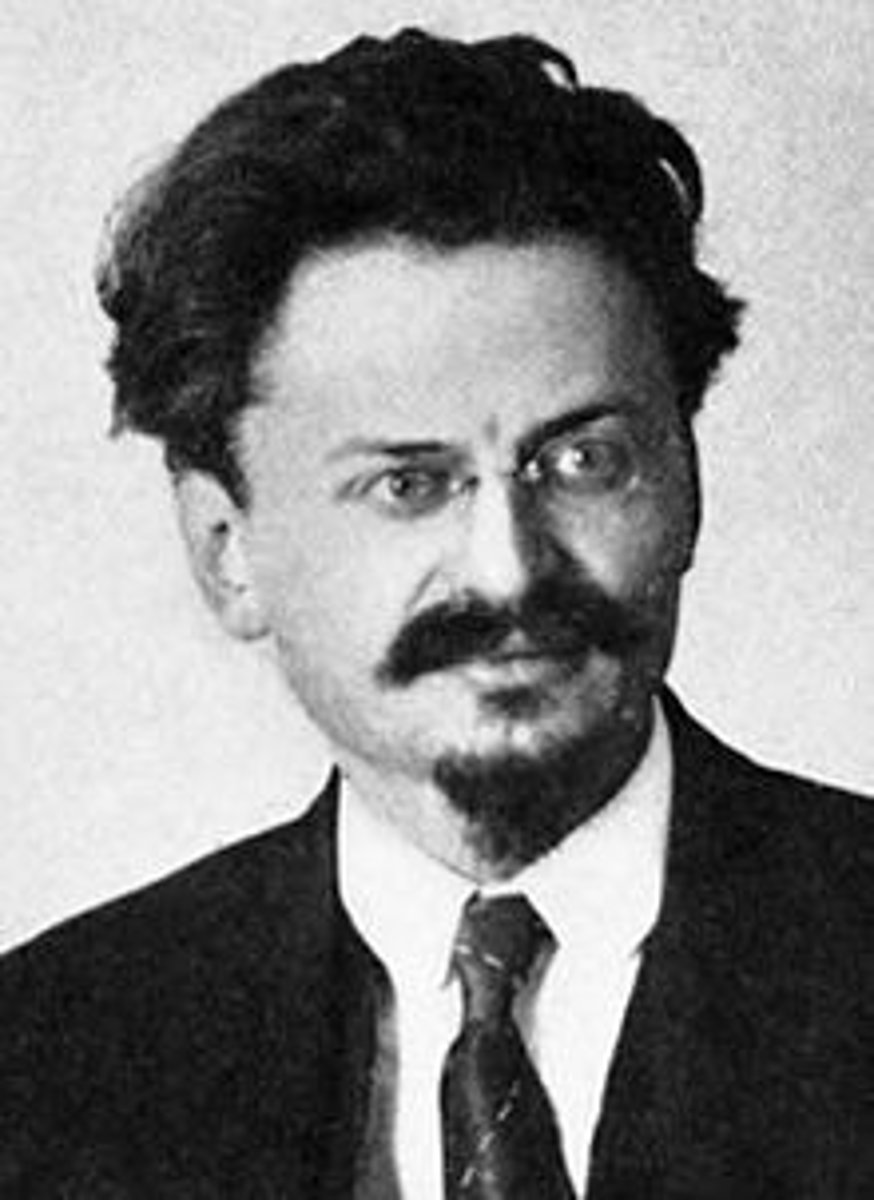
Joseph Stalin (1879-1953)
After Lenin died in 1924, he defeated Trotsky to gain power in the U.S.S.R. He created consecutive five year plans to expand heavy industry. He tried to crush all opposition and ruled as the absolute dictator of the U.S.S.R. until his death.
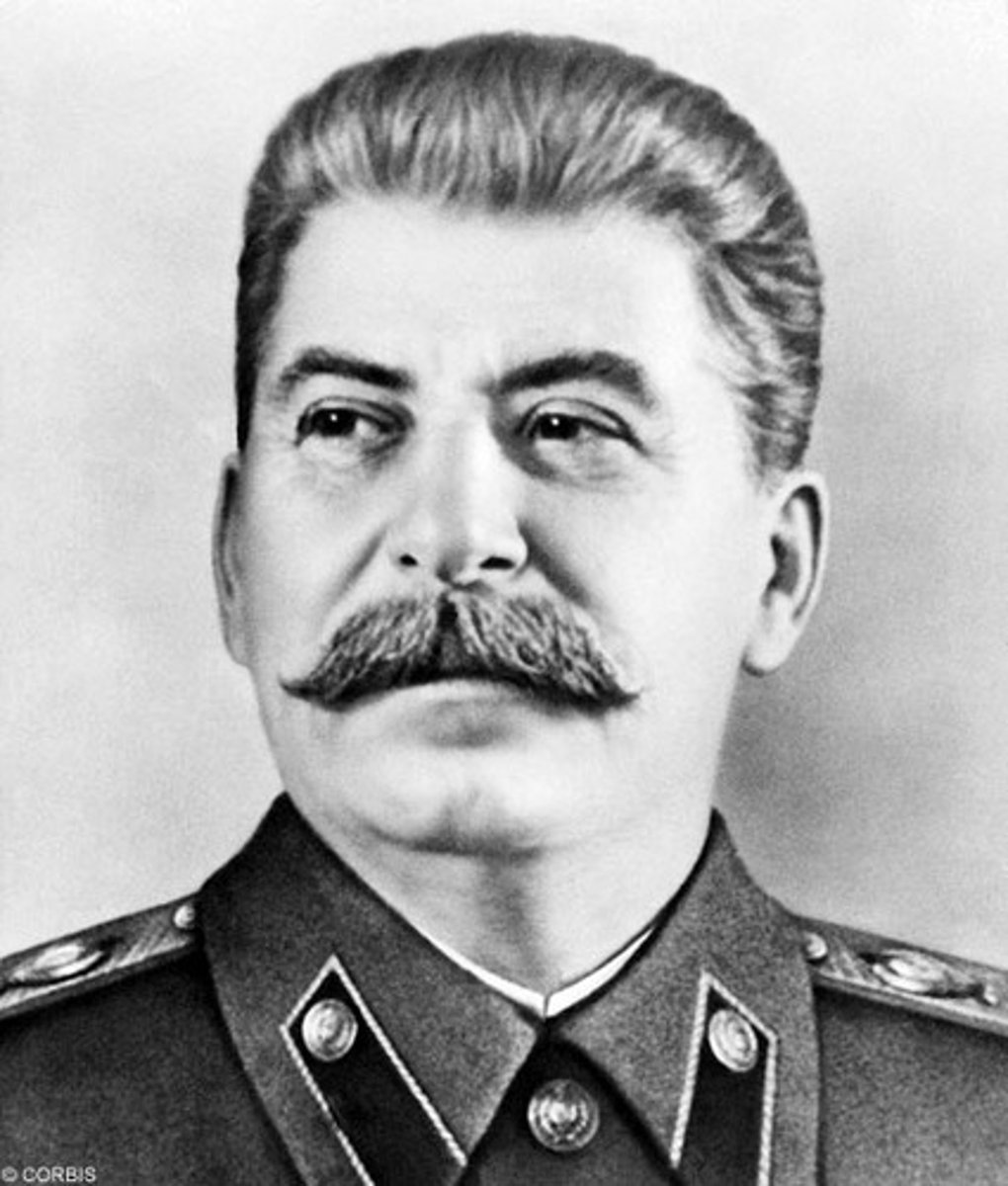
Petrograd Soviet
A huge, fluctuating mass meeting of two to three thousand workers, soldiers, and socialist intellectuals modeled on the revolutionary soviets of 1905.
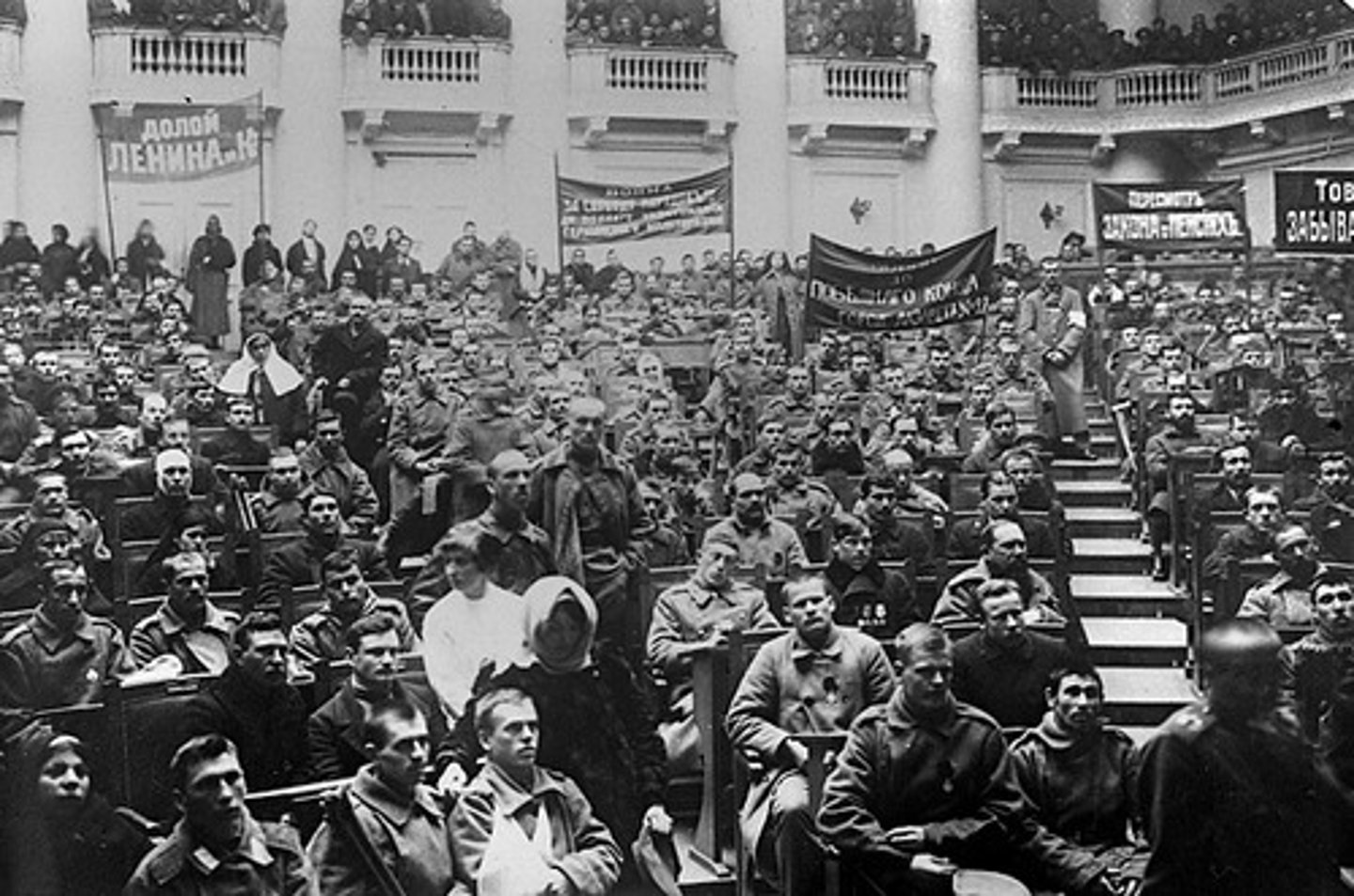
Bolsheviks
Lenin's radical, revolutionary arm of the Russian party of Marxist socialism, which successfully installed a dictatorial socialist regime in Russia.
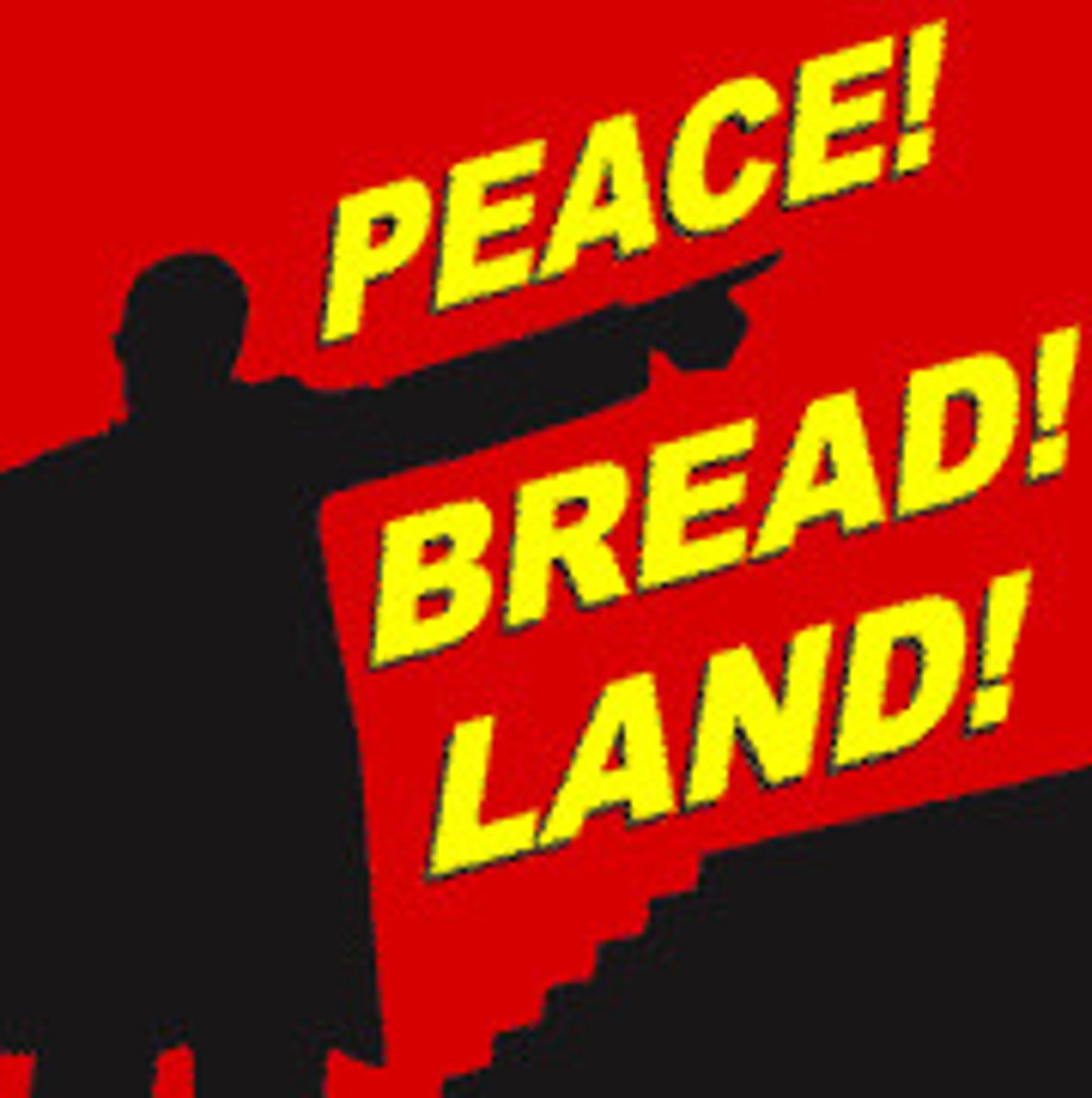
Mensheviks
The party which opposed to the Bolsheviks. Started in 1903 by Martov, after dispute with Lenin. The Mensheviks wanted a democratic party with mass membership.
War Communism
The application of centralized state control during the Russian civil war, in which the Bolsheviks seized grain from peasants, introduced rationing, nationalized all banks and industry, and required everyone to work.
Treaty of Brest-Litovsk (1918)
1. Ended Bolshevik Russia's participation in World War I
2. Negotiated by Vladimir Lenin because he was unwilling to risk Bolshevik gains by continuing a war that could no longer be won
3. Nullified following Germany's defeat by the Allies
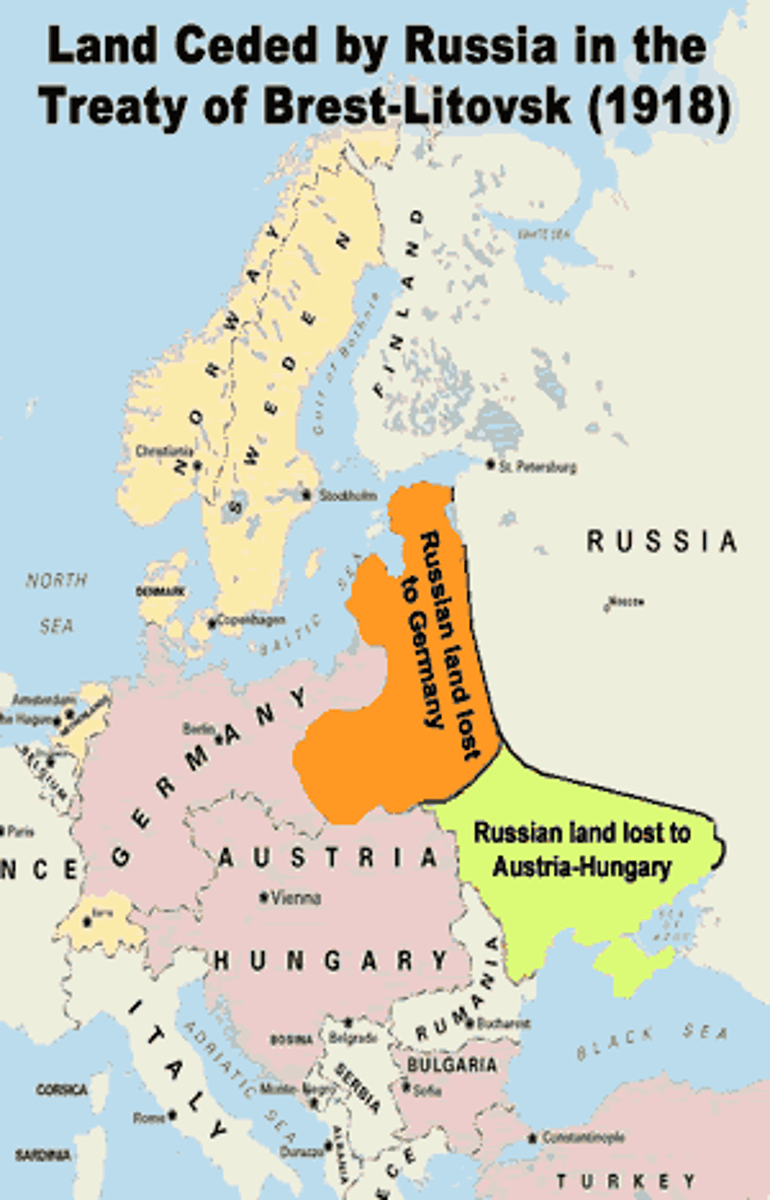
Casualties of World War I
The casualties on all sides came to about 10 million dead and twice as many wounded, and the financial resources of the European states were badly strained.
Treaty of Versailles (1919)
Treaty that ended World War I; it was much harder on Germany than Wilson wanted but not as punitive as France and England desired. It was harsh enough, however, to set stage for Hitler's rise of power in Germany in 1930s.
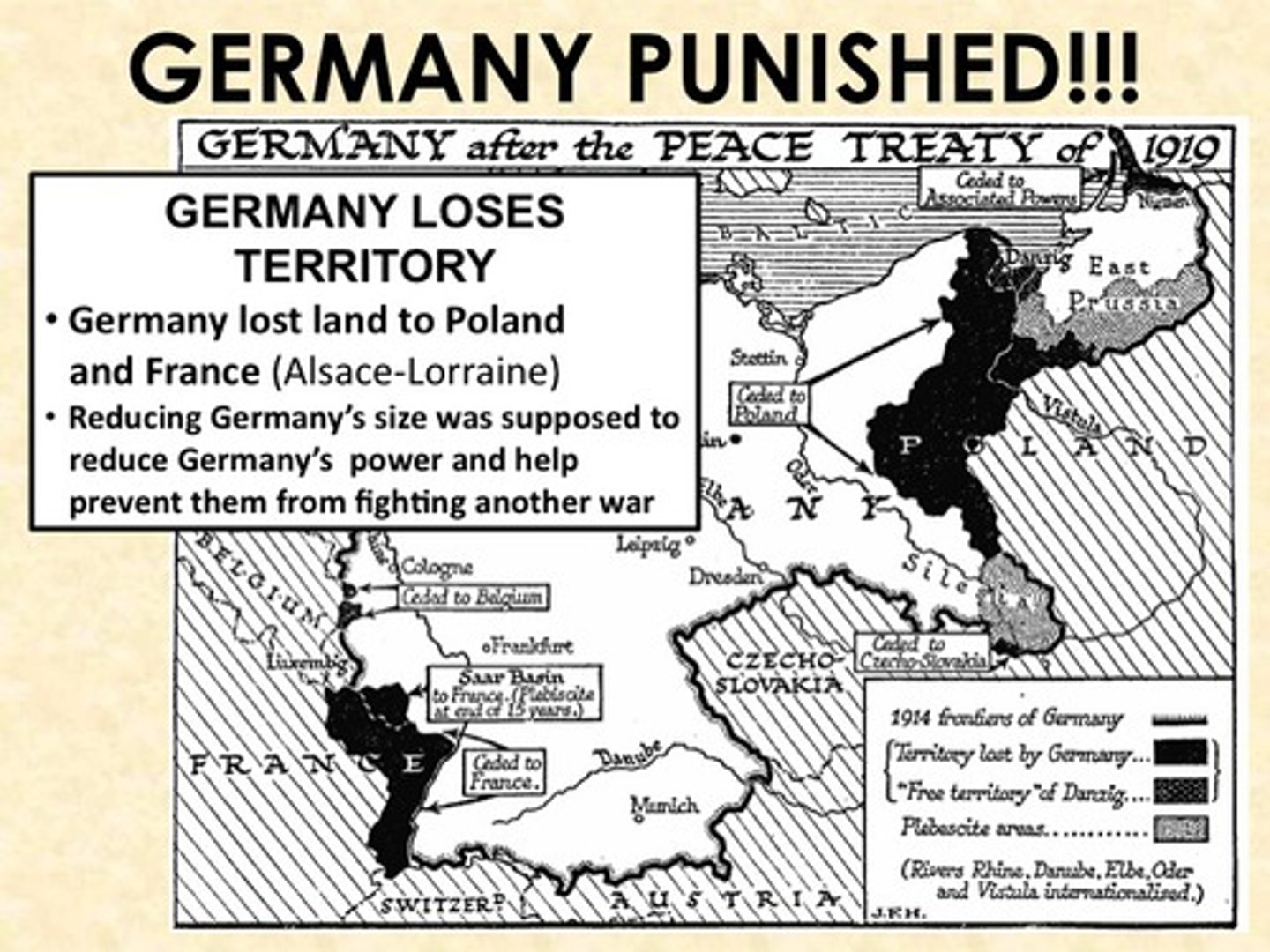
Georges Clemenceau (1841-1929) - France
A French statesman who led the nation to victory in the First World War. A leader of the Radical Party, he played a central role in politics after 1870. Clemenceau served as the Prime Minister of France from 1906 to 1909, and again from 1917 to 1920. He was one of the principal architects of the Treaty of Versailles at the Paris Peace Conference of 1919. Nicknamed "Le Tigre" (The Tiger), he took a very harsh position against defeated Germany and won agreement on Germany's payment of large sums for reparations.
David Lloyd George (1863-1945) - Great Britain
Lloyd George was a key figure in the introduction of many reforms which laid the foundations of the modern welfare state. His most important role came as the highly energetic Prime Minister of the Wartime Coalition Government (1916-22), during and immediately after the First World War. He was a major player at the Paris Peace Conference of 1919 that reordered Europe after the defeat of the Central Powers.
Vittorio Orlando (1860-1952) - Italy
He was the Italian representative at the Paris Peace Conference in 1919. He pushed for a revenge-based treaty at Versailles, hampering the 14 points. Orlando dramatically left the conference early in April 1919.[13] He returned briefly the following month, but was forced to resign just days before the signing of the resultant Treaty of Versailles.
War Guilt Clause
An article in the Treaty of Versailles that declared that Germany (with Austria) was solely responsible for the war and had to pay reparations equal to all civilian damages caused by the fighting.
Fourteen Points
President Woodrow Wilson's 1918 peace proposal calling for open diplomacy, a reduction in armaments, freedom of commerce and trade, the establishment of the League of Nations, and national self-determination
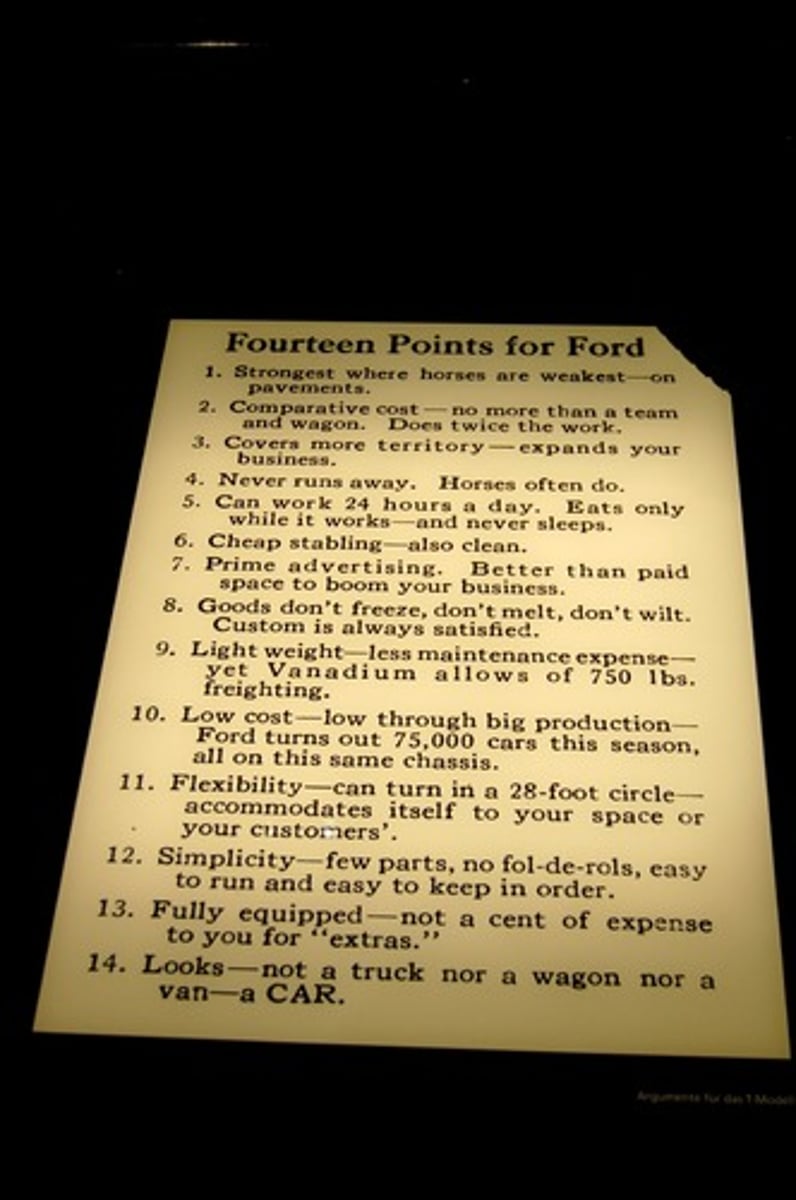
League of Nations
A permanent international organization, established during the 1919 Paris Peace Conference, designed to protect member states from aggression and avert future wars. It was not so effective in achieving its goals.
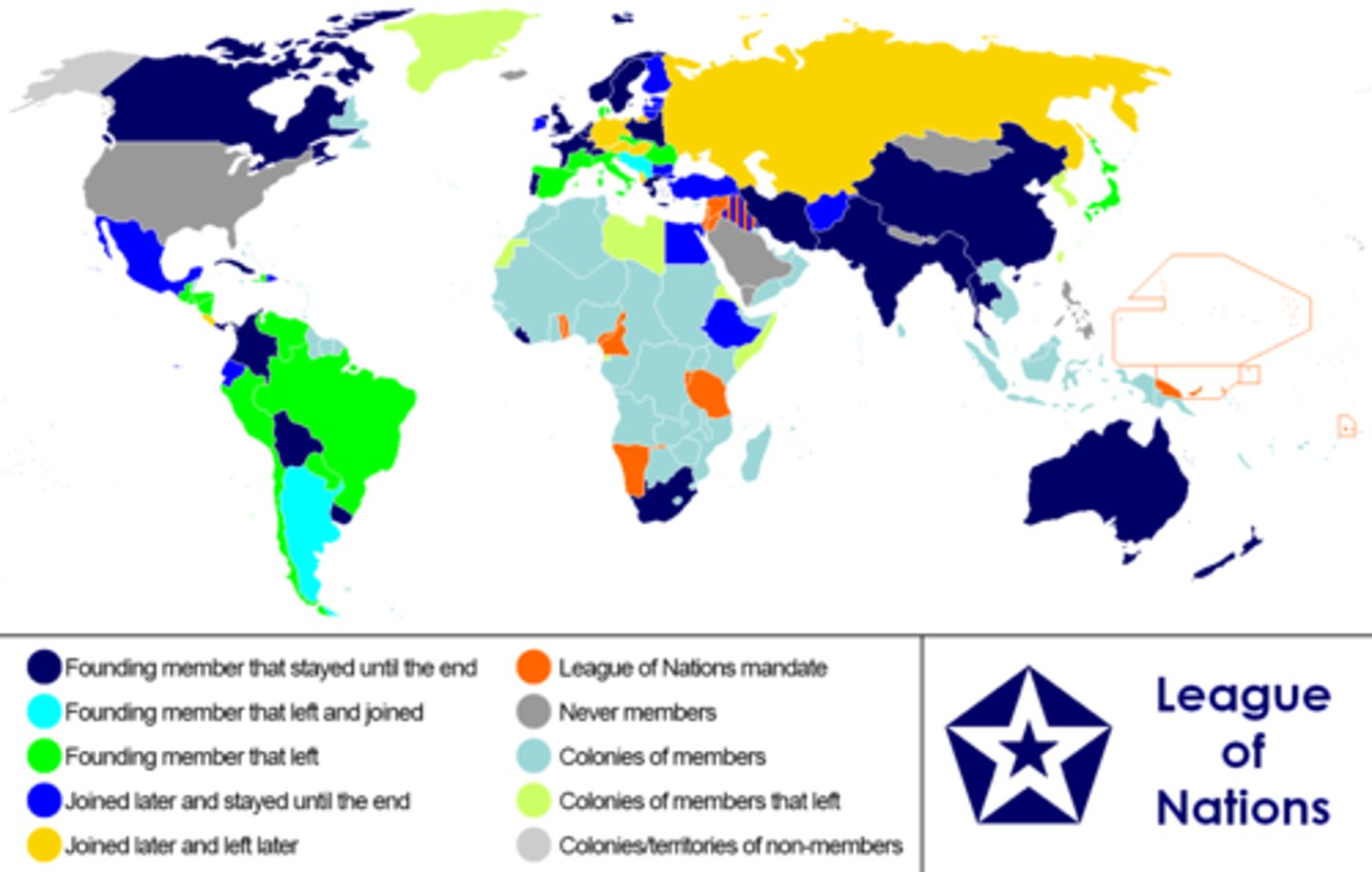
national self-determination
The notion that peoples should be able to choose their own national governments through democratic majority-rule elections and live free from outside interference in nation-states with clearly defined borders.
Mandate System
The plan to allow Britain and France to administer former Ottoman territories, put into place after the end of the First World War.
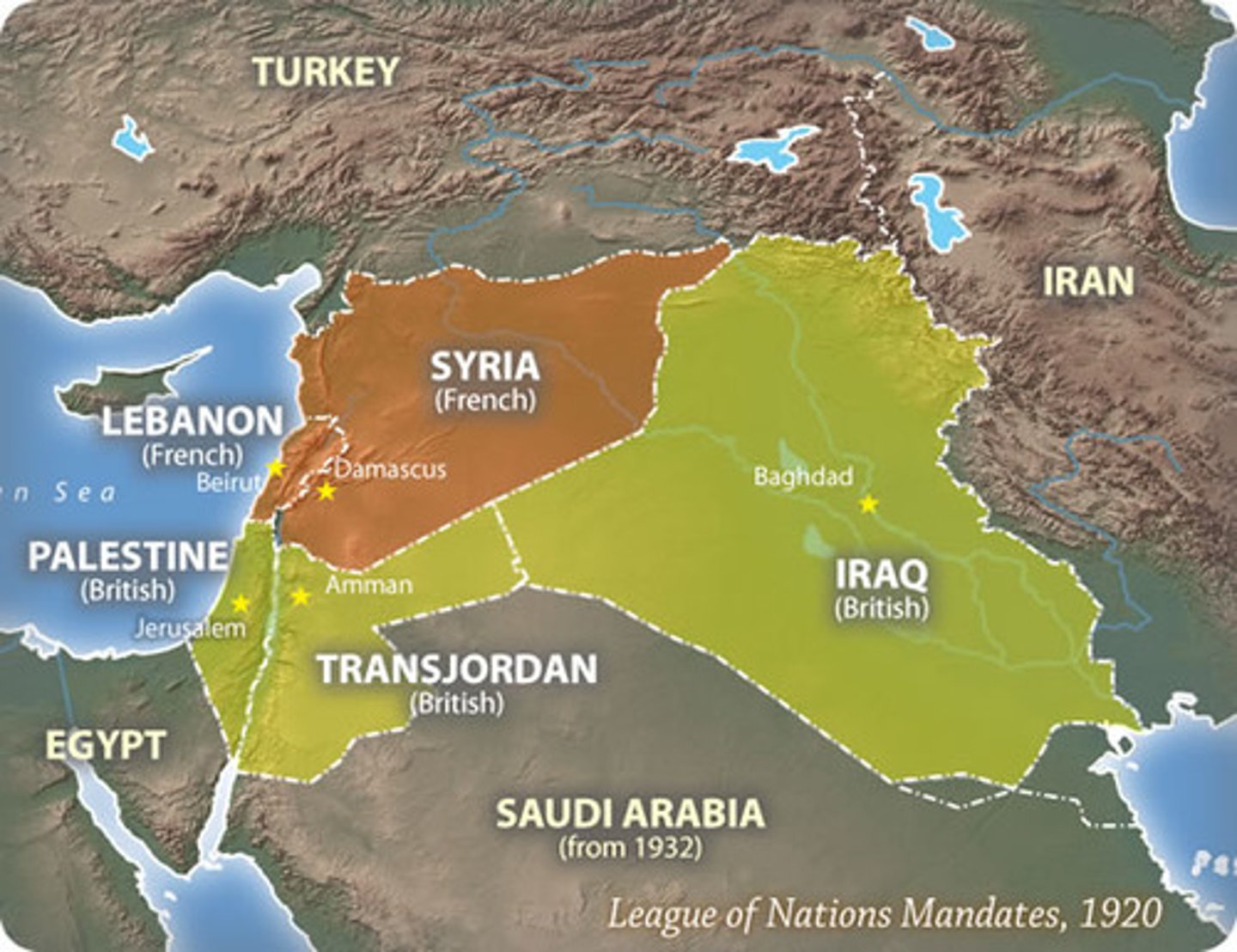
Balfour Declaration (1917)
A 1917 British statement that declared British support of a National Home for the Jewish People in Palestine.
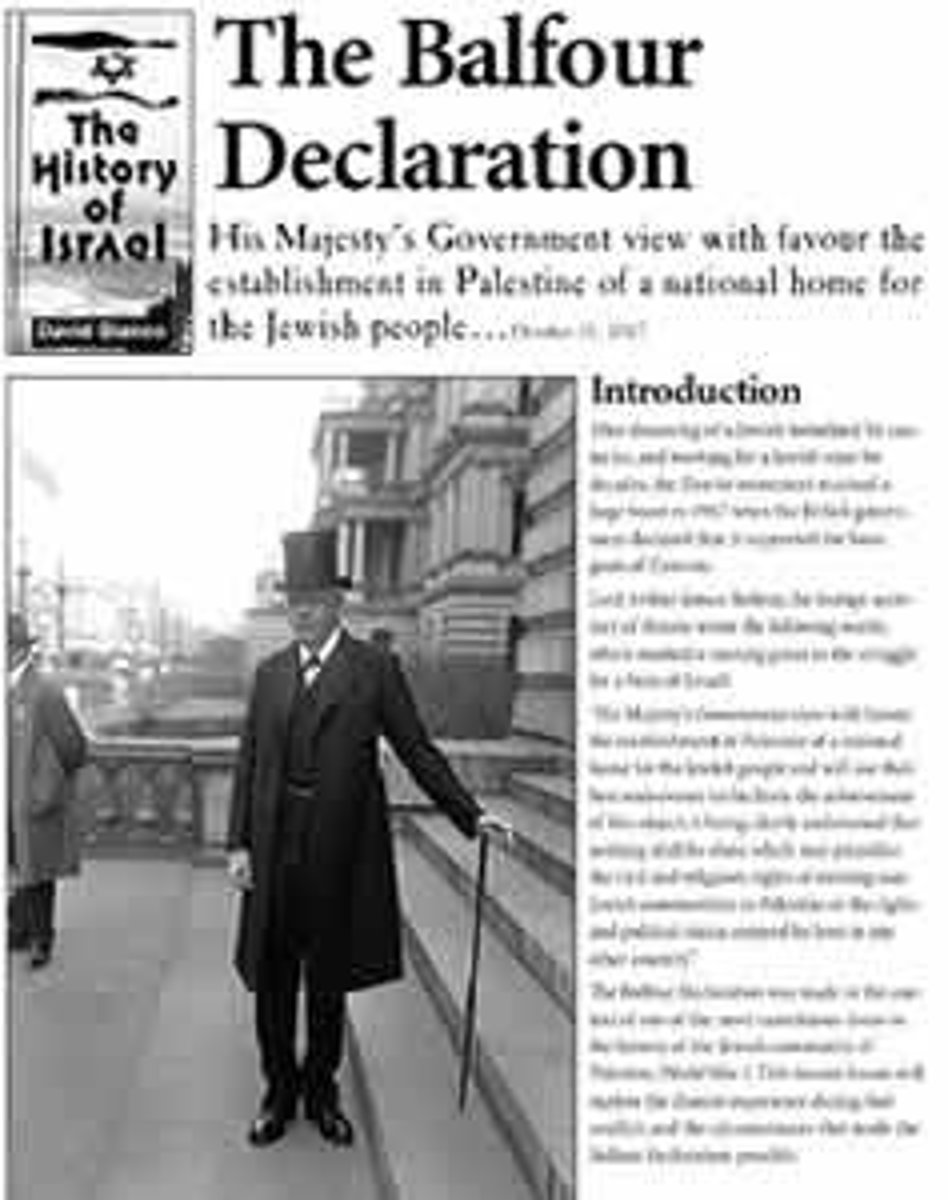
Logical Positivism
A philosophy that sees meaning in only those beliefs that can be empirically proven, and that therefore rejects most of the concerns of traditional philosophy, from the existence of God to the meaning of happiness, as nonsense.
Existentialism
A philosophy that stresses the meaninglessness of existence and the importance of the individual in searching for moral values in an uncertain world.
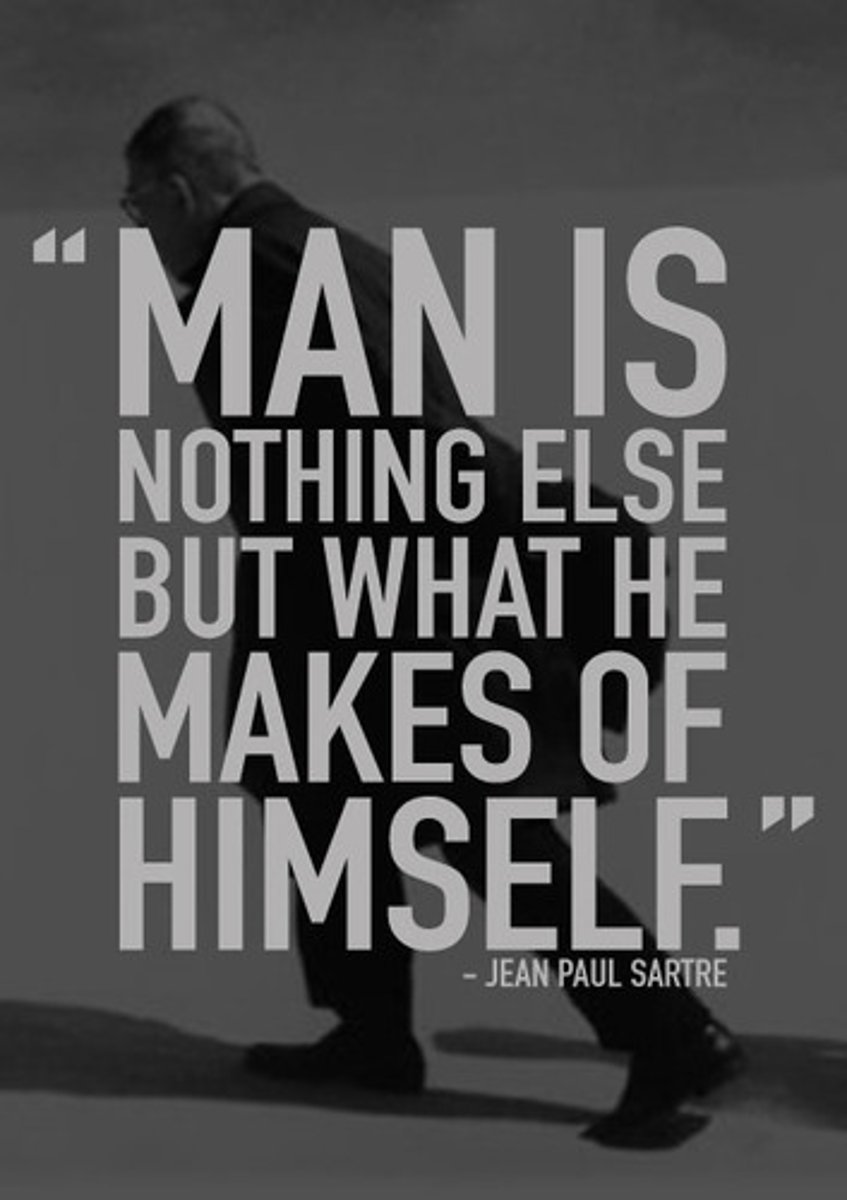
Albert Einstein (1879-1955)
1. German physicist whose theory of special relativity undermined Newtonian physics
2. Challenged traditional concepts of time, space, and motion
3. Contributed to the view that humans live in a universe with uncertainties
4. Added to the feeling of uncertainty in the postwar world
Theory of Special Relativity
Albert Einstein's theory that time and space are relative to the observer and that only the speed of light remains constant
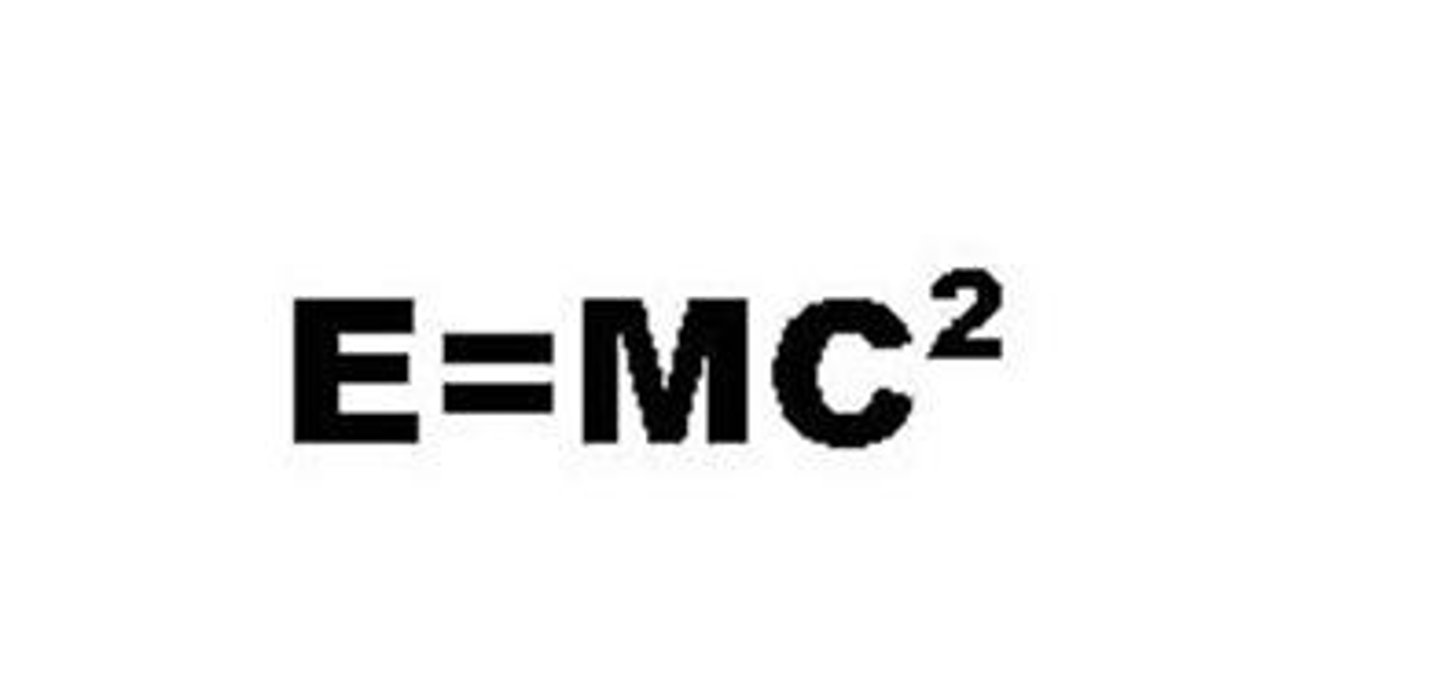
Sigmund Freud
Austrian physician whose work focused on the unconscious causes of behavior and personality formation; founded psychoanalysis.
id, ego, superego
Freud said that there was conscious, which you could control, and the subconscious.
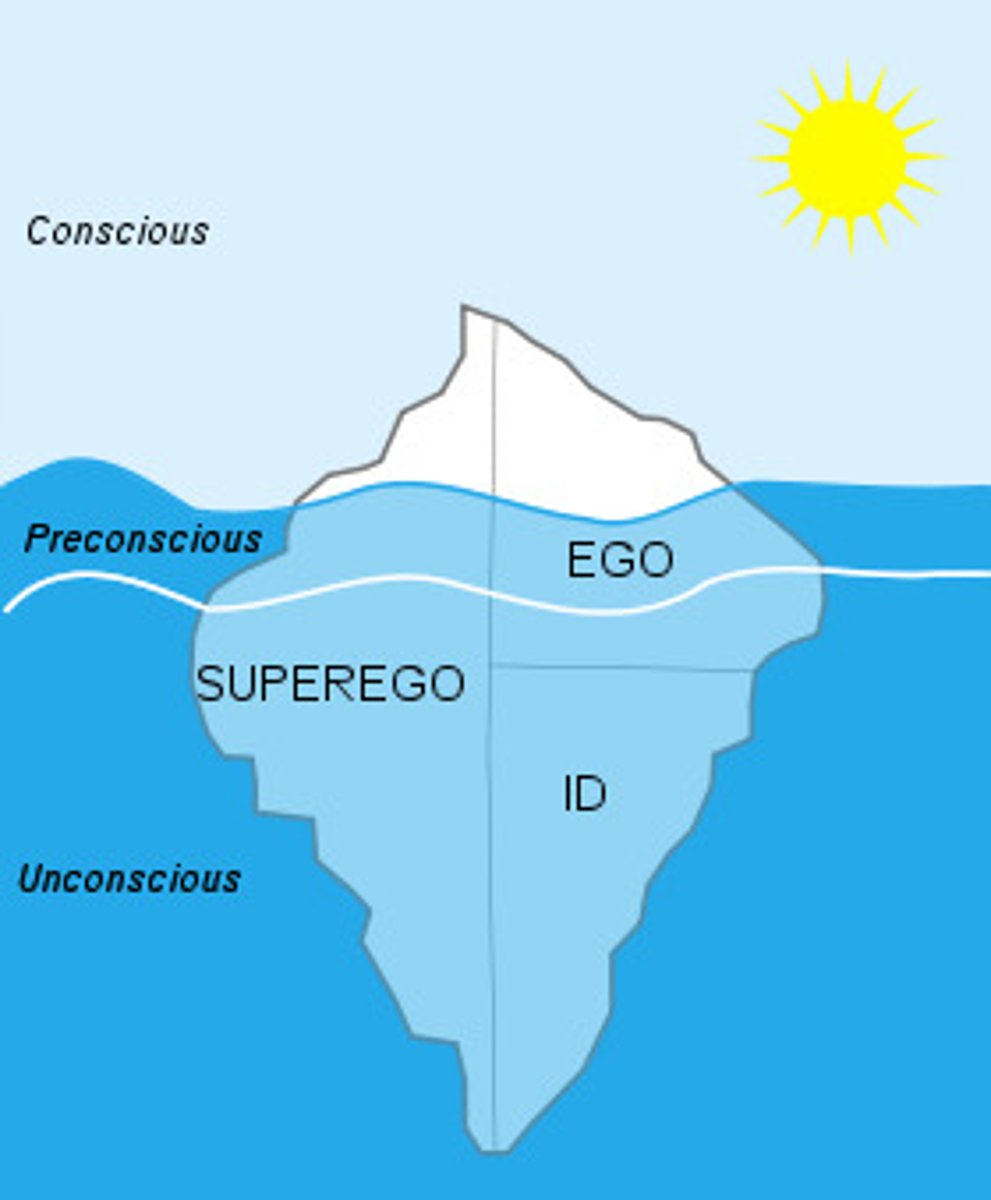
Functionalism
The principle that buildings, like industrial products, should serve as well as possible the purpose for which they were made, without excessive ornamentation.
Bauhaus
A German interdisciplinary school of fine and applied arts that brought together many leading modern architects, designers, and theatrical innovators.
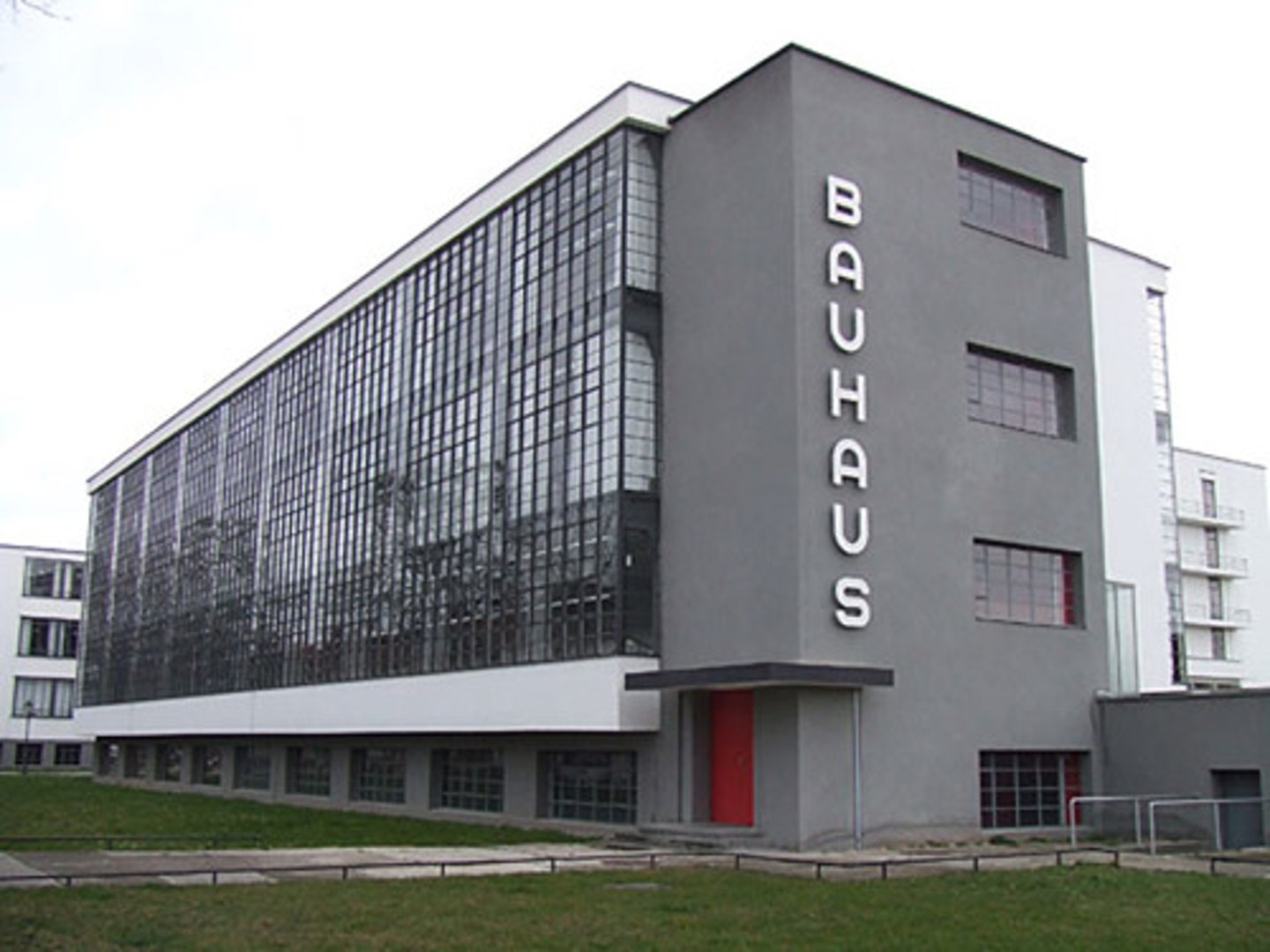
Modern Art
A general term for the huge changes in art in the 20th C. Much modern art is about the simplification and flattening of an image often to represent an essential aspect of reality instead of a representation of a visual scene (real or imagined).
Dadaism (1916-1922)
An avant-garde movement that began in response to the devastation of World War I. Based in Paris and led by the poet Tristan Tzara, the Dadaists produced nihilistic and antilogical prose, poetry, and art, and rejected the traditions, rules, and ideals of prewar Europe.
Surrealism
A 20th-century avant-garde movement in art and literature that sought to release the creative potential of the unconscious mind, for example by the irrational juxtaposition of images.
Lost Generation
A group of authors that believed they were lost in a greedy, materialistic world, which lacked moral boundaries. These thinkers often fled to Europe.
stream of consciousness technique
A literary technique, found in works by Virginia Woolf, James Joyce, and others, that uses interior monologue — a character's thoughts and feelings as they occur — to explore the human psyche.
"modern girl"
Somewhat stereotypical image of the modern and independent working woman popular in the 1920s.
Dawes Plan (1924)
War reparations agreement that reduced Germany's yearly payments, made payment dependent on economic prosperity, and granted large U.S. loans to promote recovery.
Great Depression
A worldwide economic depression from 1929 through 1939, unique in its severity and duration and with slow and uneven recovery.
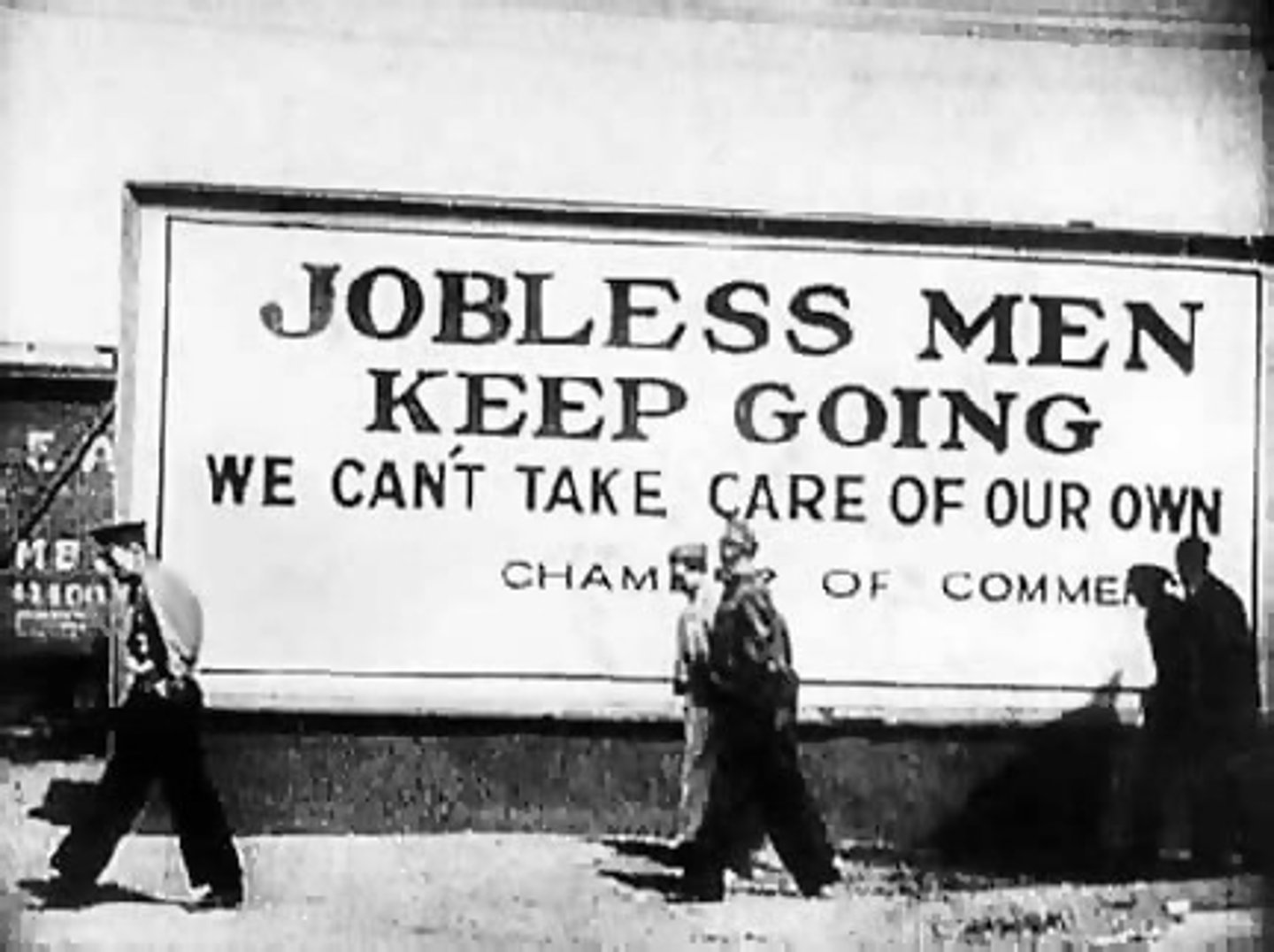
Stock Market Crash of 1929
*the Dow Jones Industrial Average dropped fifty percent and over 13 million shares of stock were traded
*On 29th, (Black Tuesday), over 16 million shares of stock were traded
*The crash led to the Great Depression
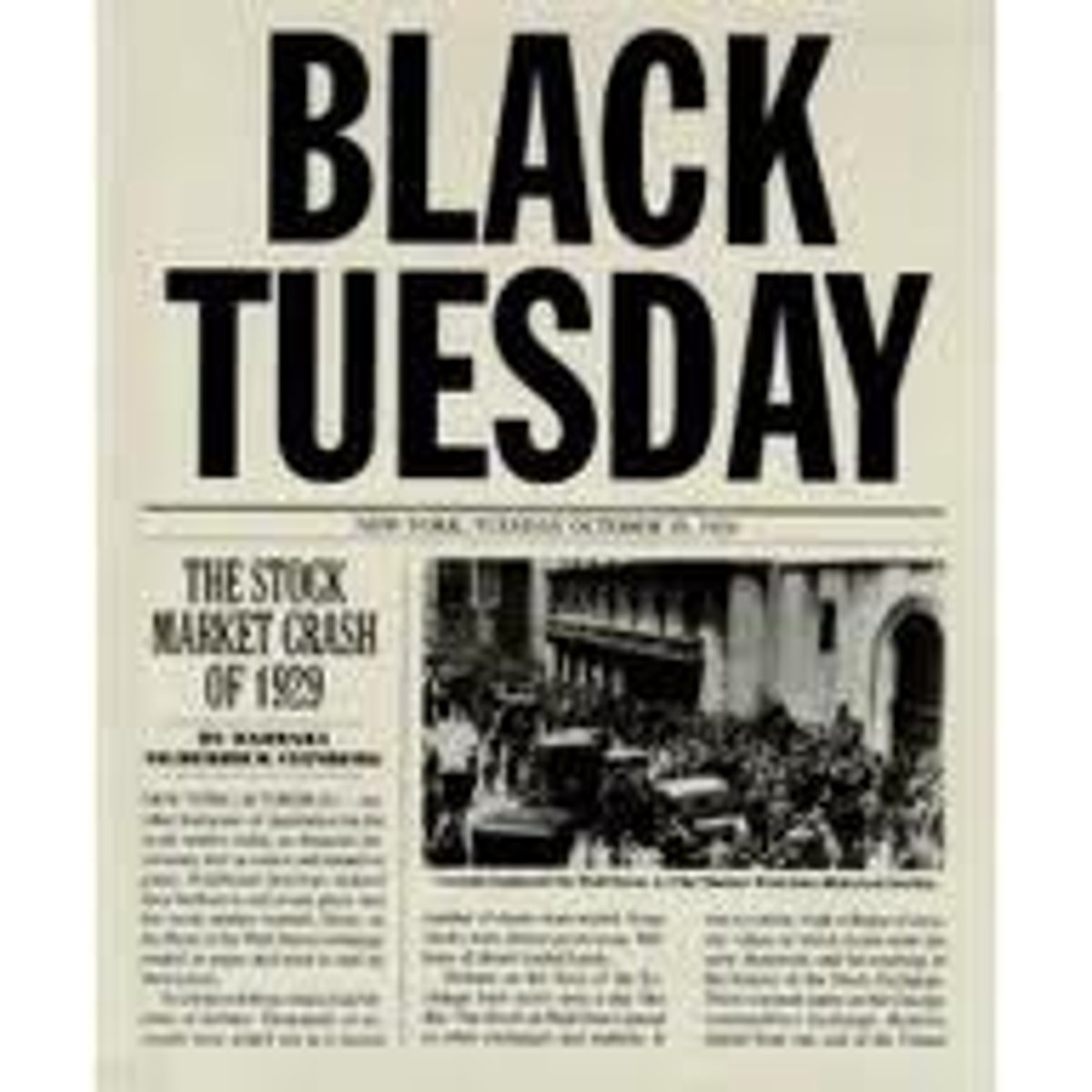
Totalitarianism
A radical dictatorship that exercises "total claims" over the beliefs and behavior of its citizens by taking control of the economic, social, intellectual, and cultural aspects of society.
USSR
Union of Soviet Socialist Republics. Created by Lenin in 1922.
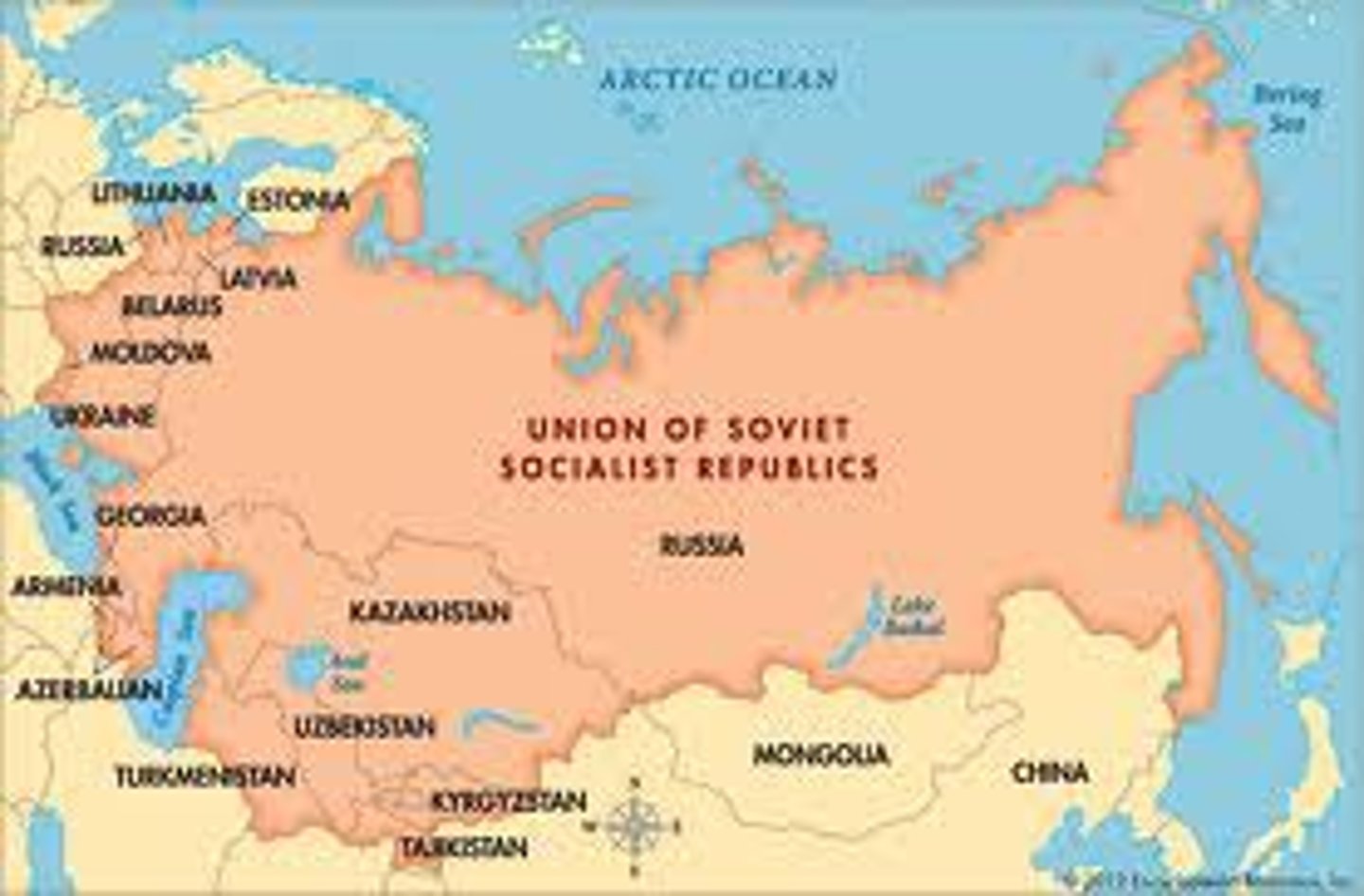
New Economic Policy (NEP)
Lenin's 1921 policy to re-establish limited economic freedom in an attempt to rebuild agriculture and industry in the face of economic disintegration.
Five Year Plan
A plan launched by Stalin in 1928, and termed the "revolution from above," aimed at modernizing the Soviet Union and creating a new Communist society with new attitudes, new loyalties, and a new socialist humanity.
Collectivization of Agriculture
As an extension of the his Five Year Plan (initiated in 1928), Stalin pursued a policy of destroying the culture of the peasant village and replacing it with one organized around huge collective farms. The peasants resisted and were killed, starved, or driven into Siberia in numbers that can only be estimated but which may have been as high as eight million.
Fascism
A movement characterized by extreme, often expansionist nationalism, anti-socialism, a dynamic and violent leader, and glorification of war and the military.
Kulaks
The better-off peasants who were stripped of land and livestock under Stalin and were generally not permitted to join collective farms; many of them starved or were deported to forced-labor camps for "re-education."
Eugenics
A pseudoscientific doctrine that maintains that the selective breeding of human beings can improve the general characteristics of a national population, which helped inspire Nazi ideas about "race and space" and ultimately contributed to the Holocaust.
Benito Mussolini (1883-1945)
Prime Minister of the Kingdom of Italy from his golpe in 1922 to 1943 and Duce of Fascism from 1919 to his execution in 1945 during the Italian civil war. As dictator of Italy and founder of fascism, Mussolini inspired several totalitarian rulers such as Adolf Hitler.
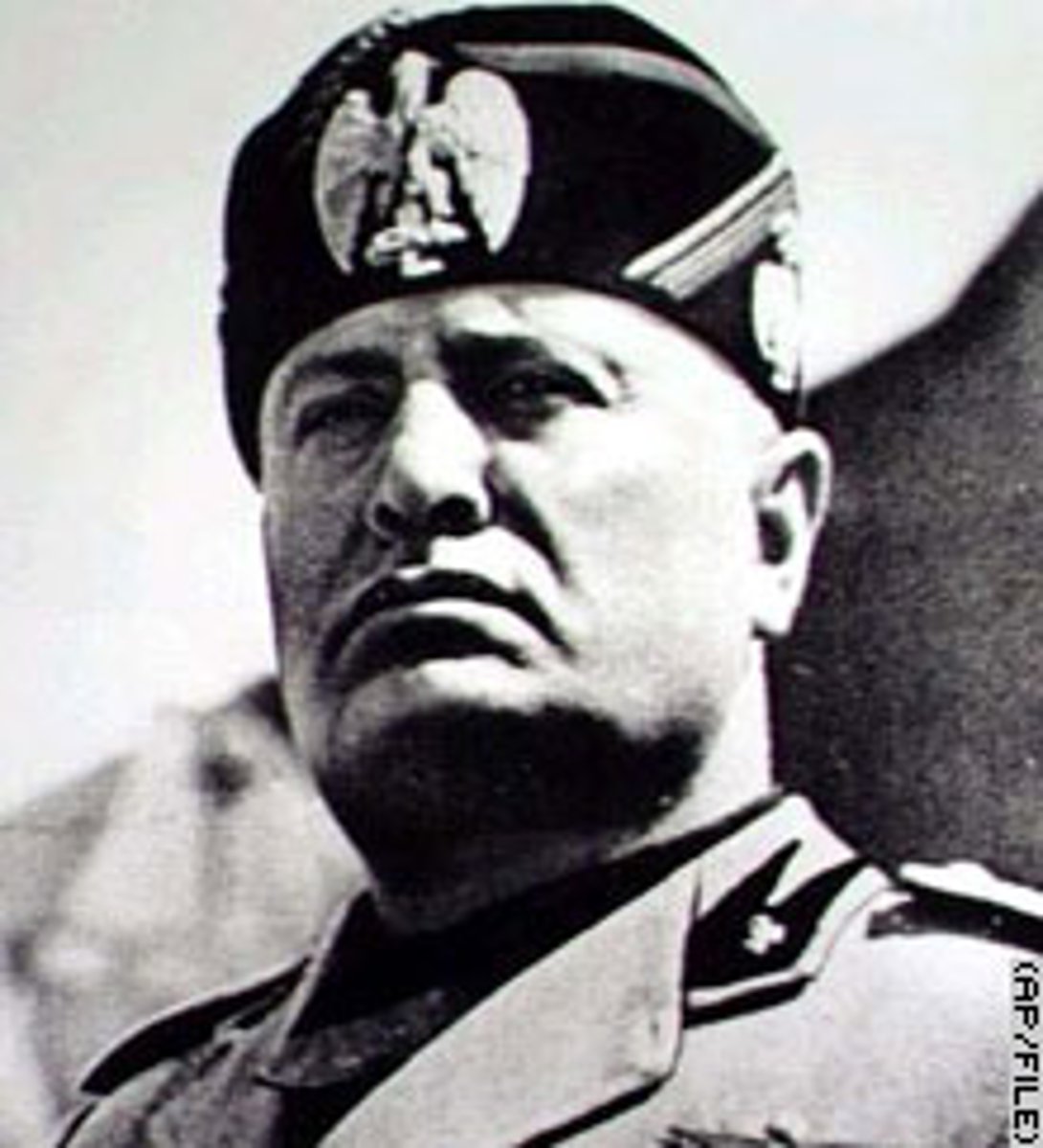
Black Shirts (Italy)
Mussolini's private militia that destroyed socialist newspapers, union halls, and Socialist Party headquarters, eventually pushing Socialists out of the city governments of northern Italy.
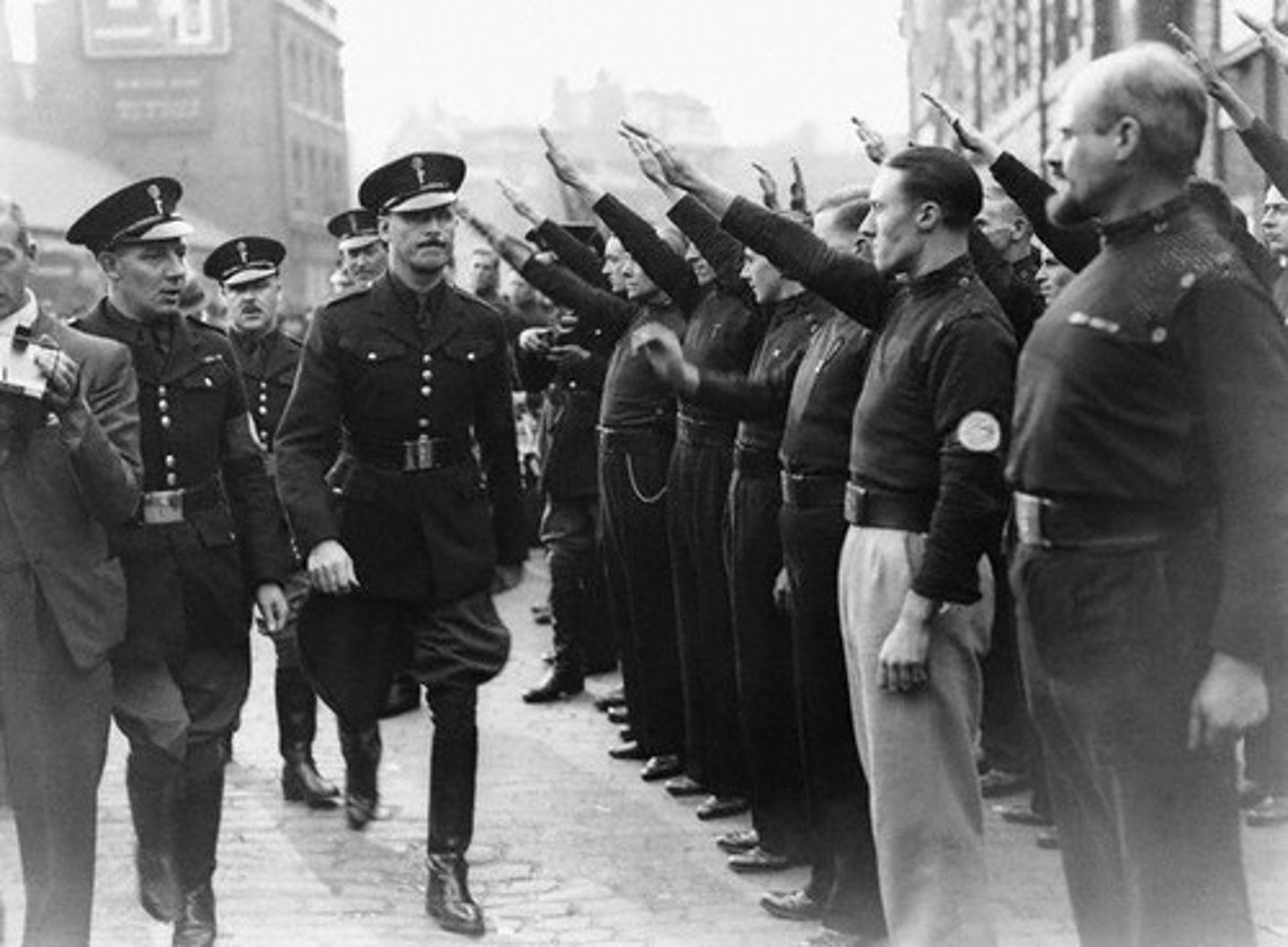
Lateran Agreement of 1929
A 1929 agreement that recognized the Vatican as an independent state, with Mussolini agreeing to give the church heavy financial support in return for public support from the pope.
Adolf Hitler (1889-1945)
A German politician and leader of the Nazi Party. He rose to power as Chancellor of Germany in 1933 and later Führer in 1934. During his dictatorship from 1933 to 1945, he initiated World War II in Europe by invading Poland in September 1939. He was closely involved in military operations throughout the war and was central to the perpetration of the Holocaust.
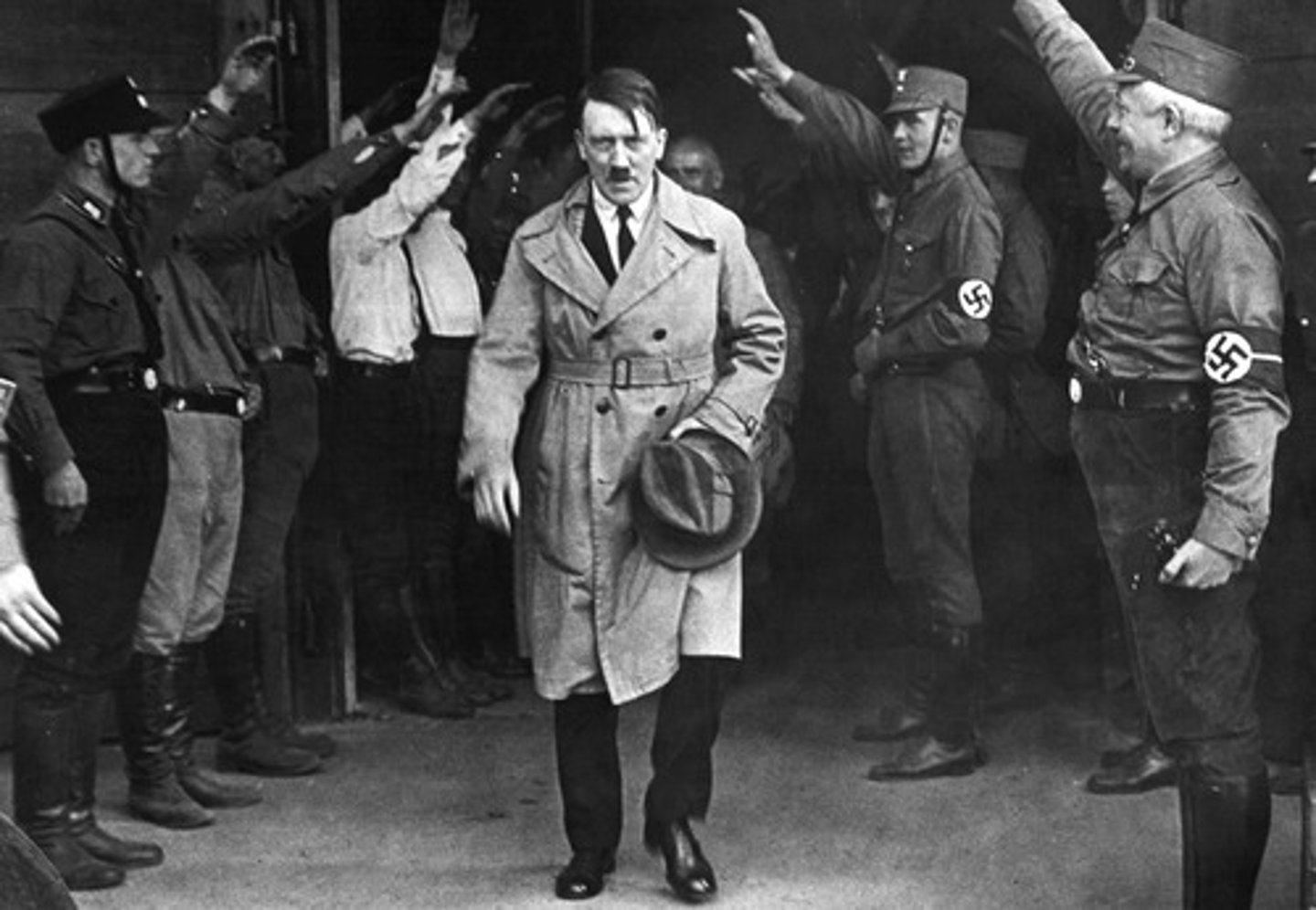
National Socialism
A movement and political party driven by extreme nationalism and racism, led by Adolf Hitler; its adherents ruled Germany from 1933 to 1945 and forced Europe into World War II.
Enabling Act
An act pushed through the Reichstag by the Nazis that gave Hitler absolute dictatorial power for four years.
New Order
Hitler's program based on racial imperialism, which gave preferential treatment to the Nordic peoples; the French, an "inferior" Latin people, occupied a middle position, and Slavs and Jews were treated harshly as "subhumans."
Appeasement
The British policy toward Germany prior to World War II that aimed at granting Hitler whatever he wanted, including western Czechoslovakia, in order to avoid war.
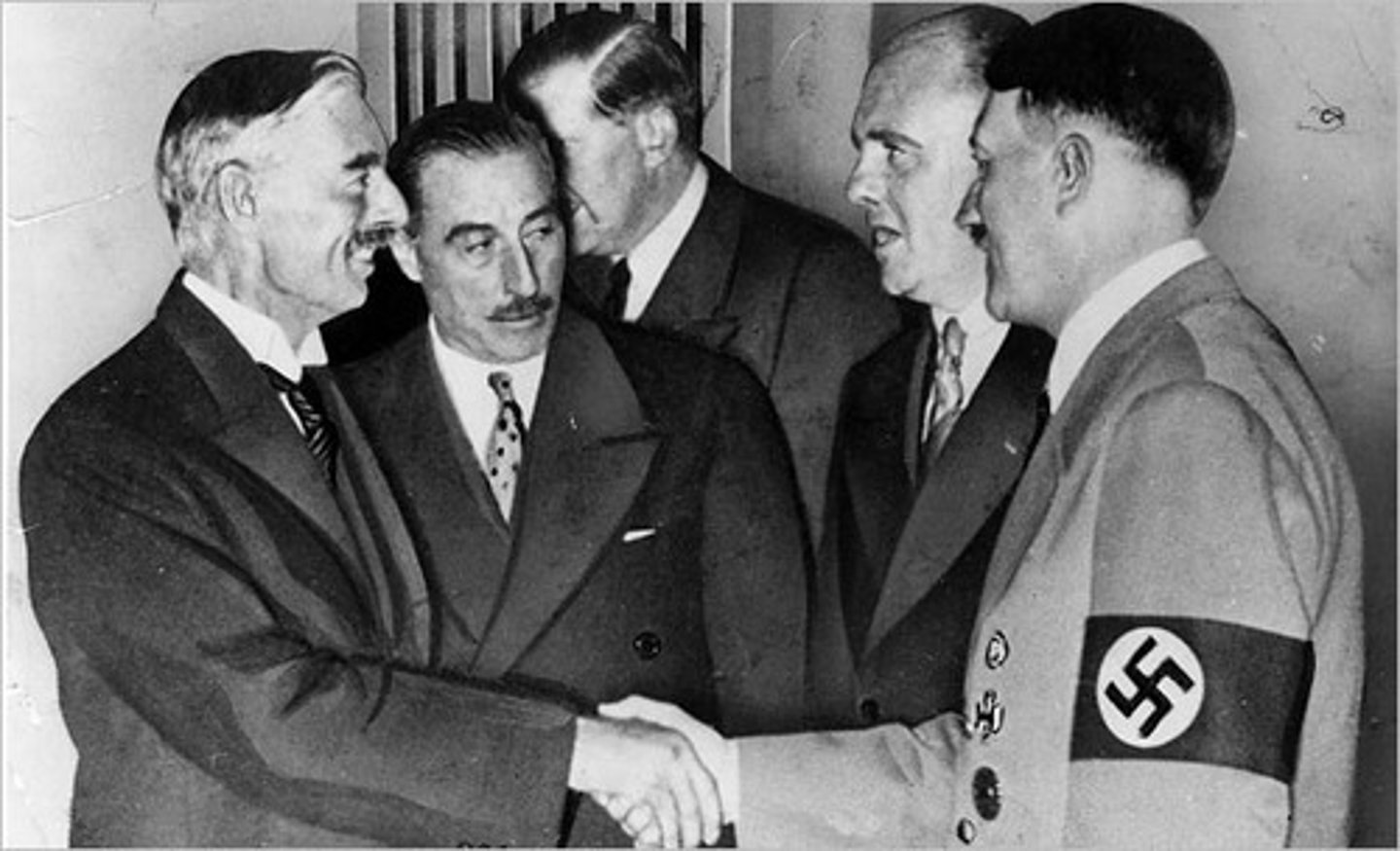
Holocaust/Final Solution
The attempted physical extermination of the Jewish people by the Nazis during WWII; between five and six million Jews were killed, essentially two out of three European Jews.
World War II (1939-1945)
A global war that lasted from 1939 to 1945. The vast majority of the world's countries—including all the great powers—eventually formed two opposing military alliances: the Allies and the Axis. A state of total war emerged, directly involving more than 100 million people from over 30 countries. The major participants threw their entire economic, industrial, and scientific capabilities behind the war effort, blurring the distinction between civilian and military resources. World War II was the deadliest conflict in human history, marked by 50 to 85 million fatalities, most of whom were civilians in the Soviet Union and China. It included massacres, the genocide of the Holocaust, strategic bombing, premeditated death from starvation and disease, and the only use of nuclear weapons in war.
Allies (WWII)
England, France, United States, and Russia after their pact with the Nazi Regime was violated.
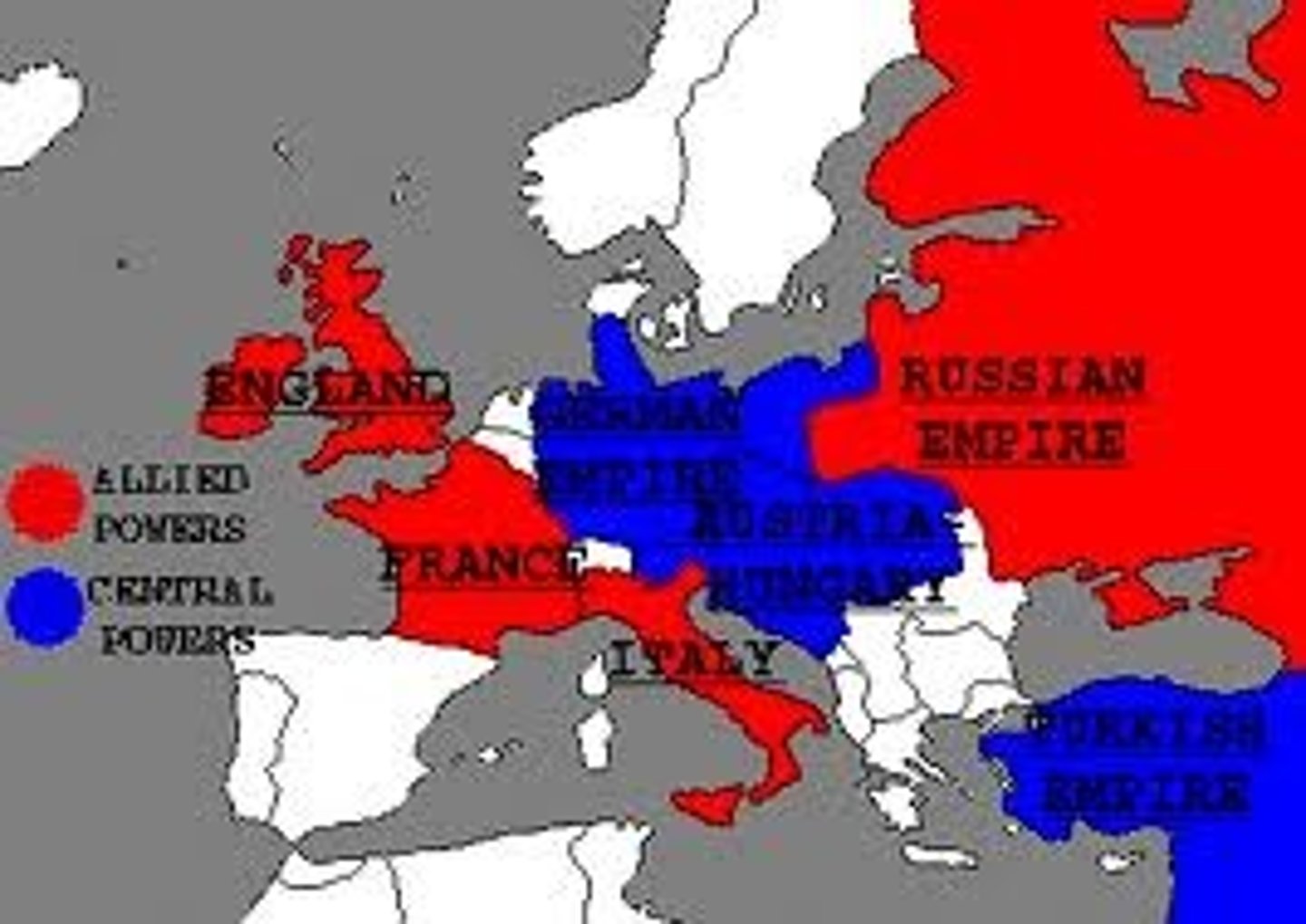
Axis Powers (WWII)
Japan, Germany, and Italy
